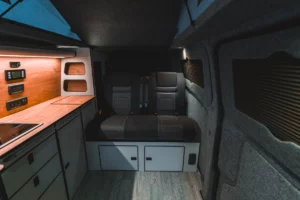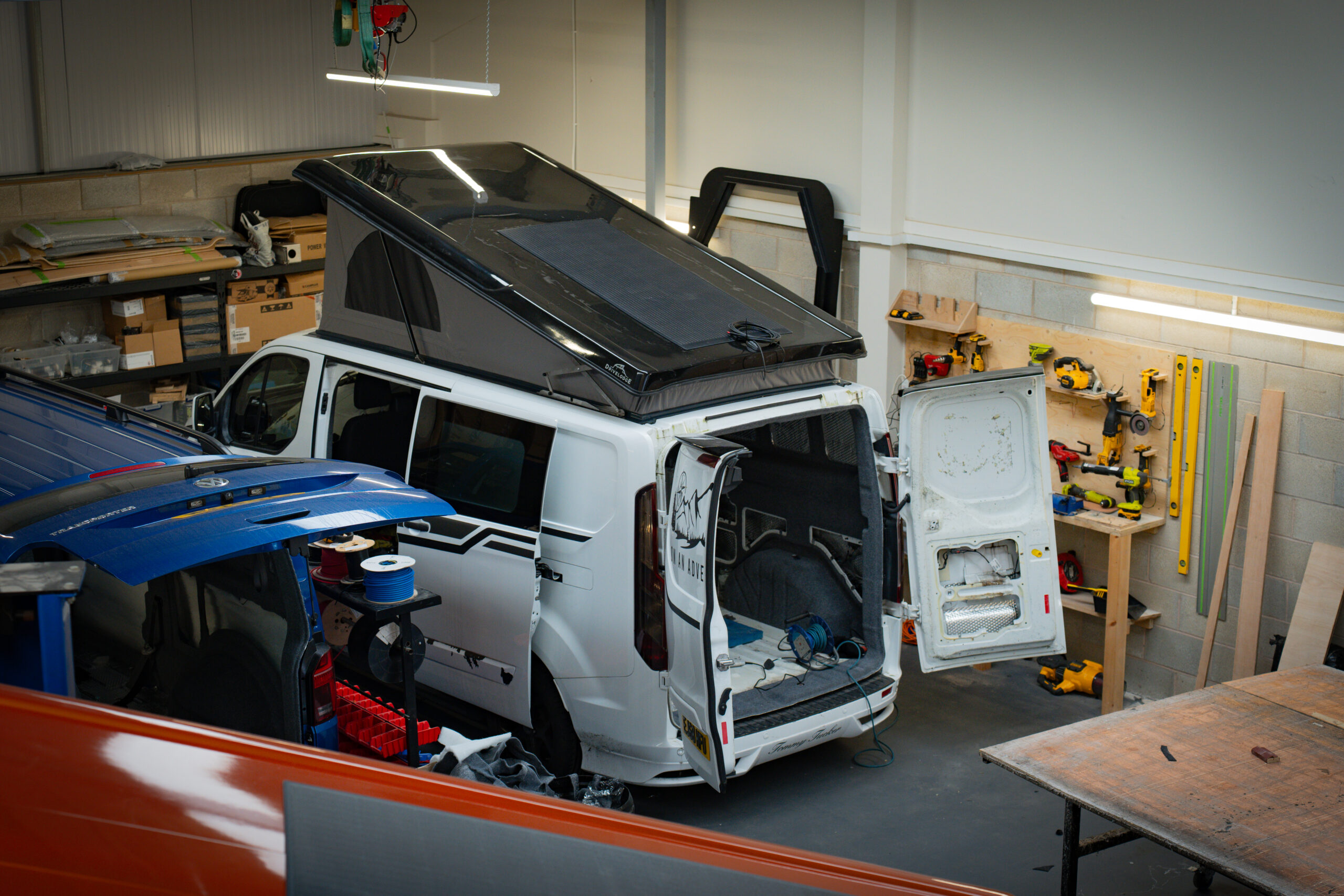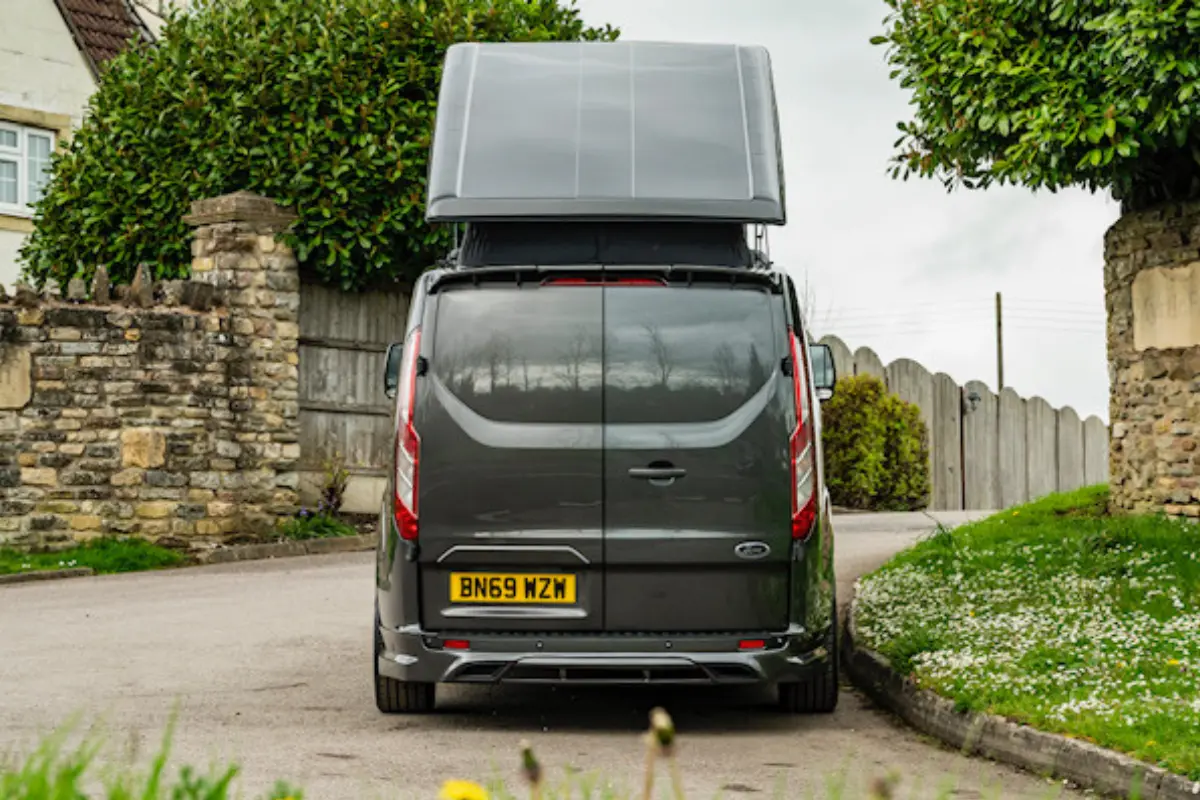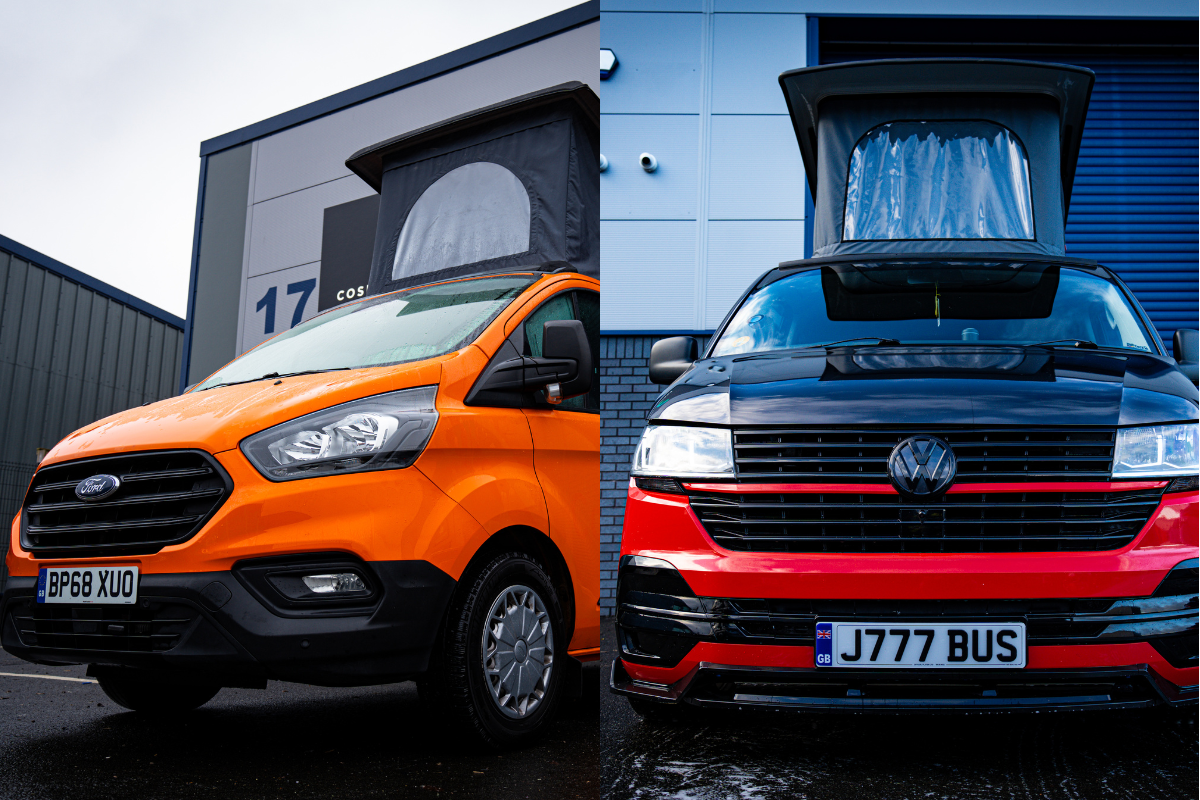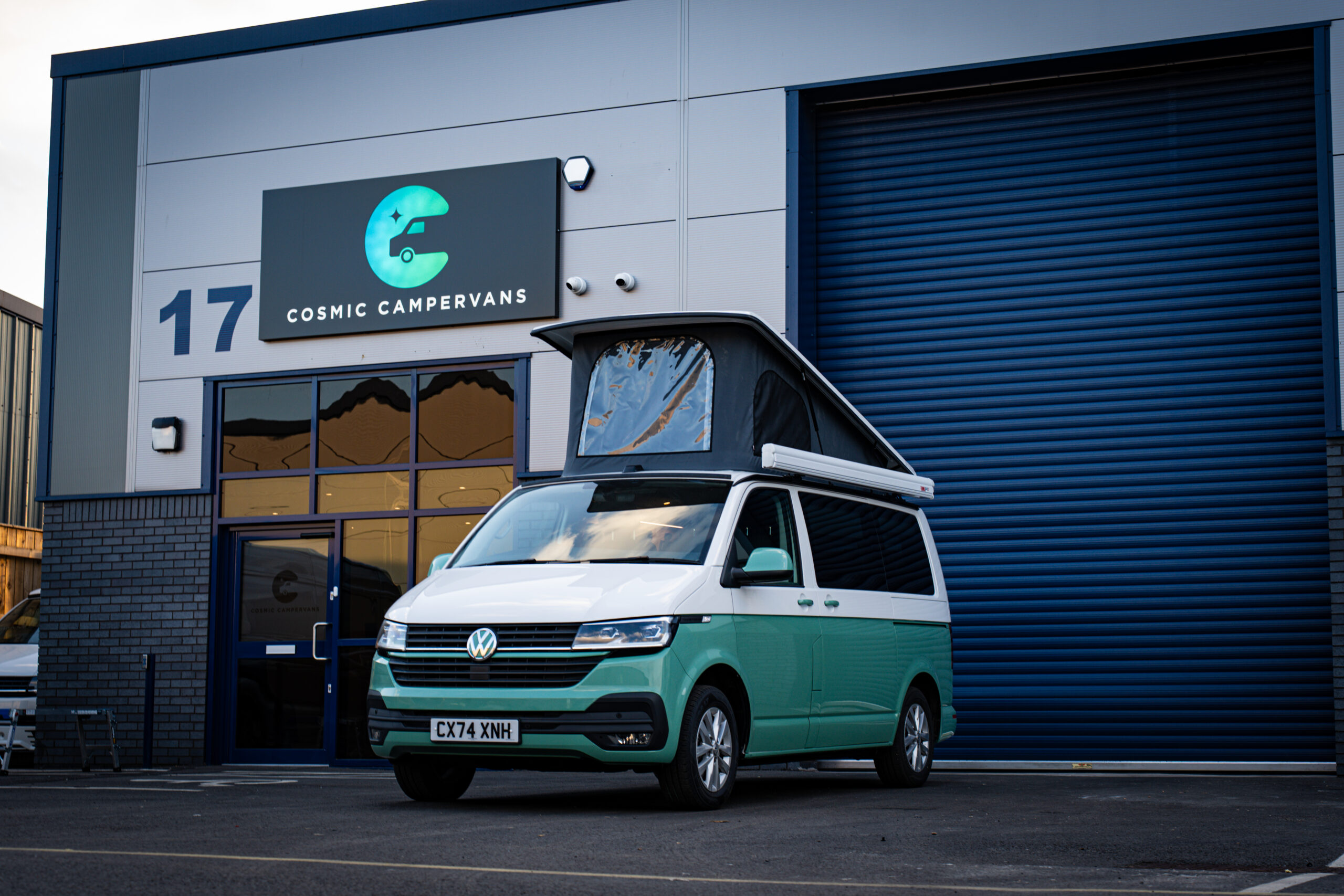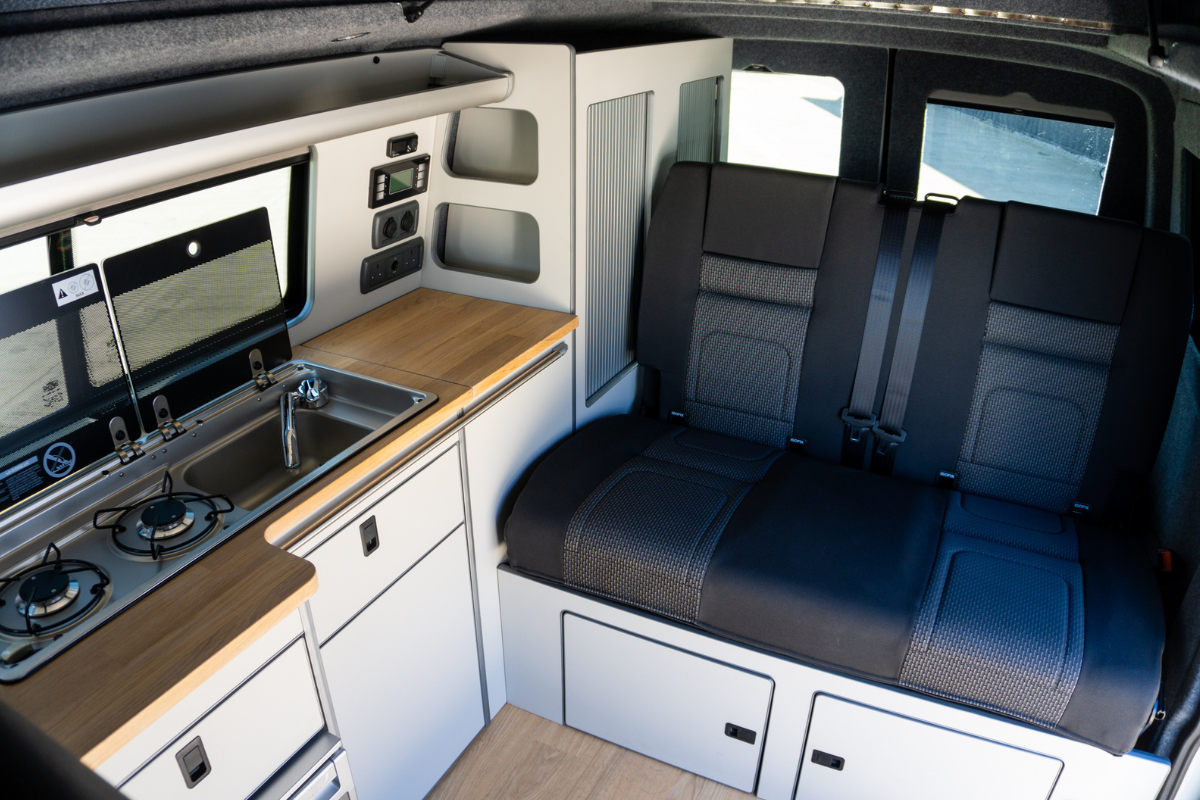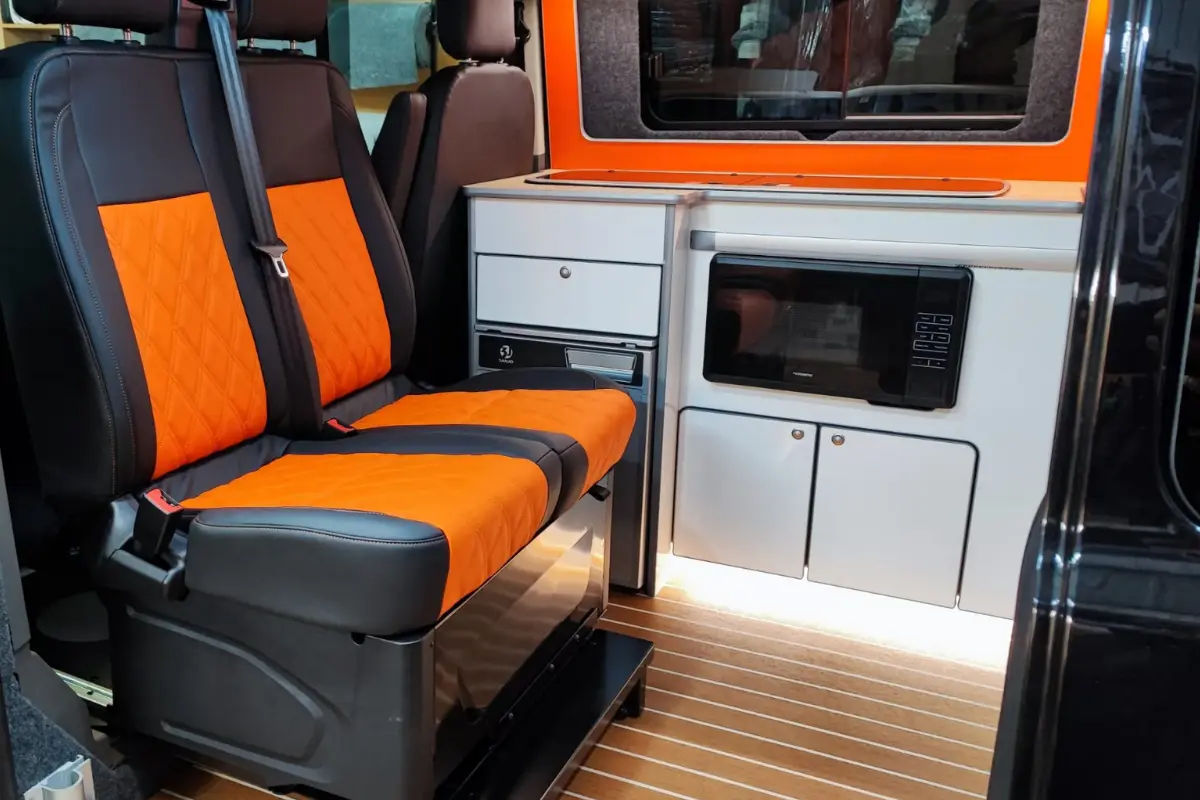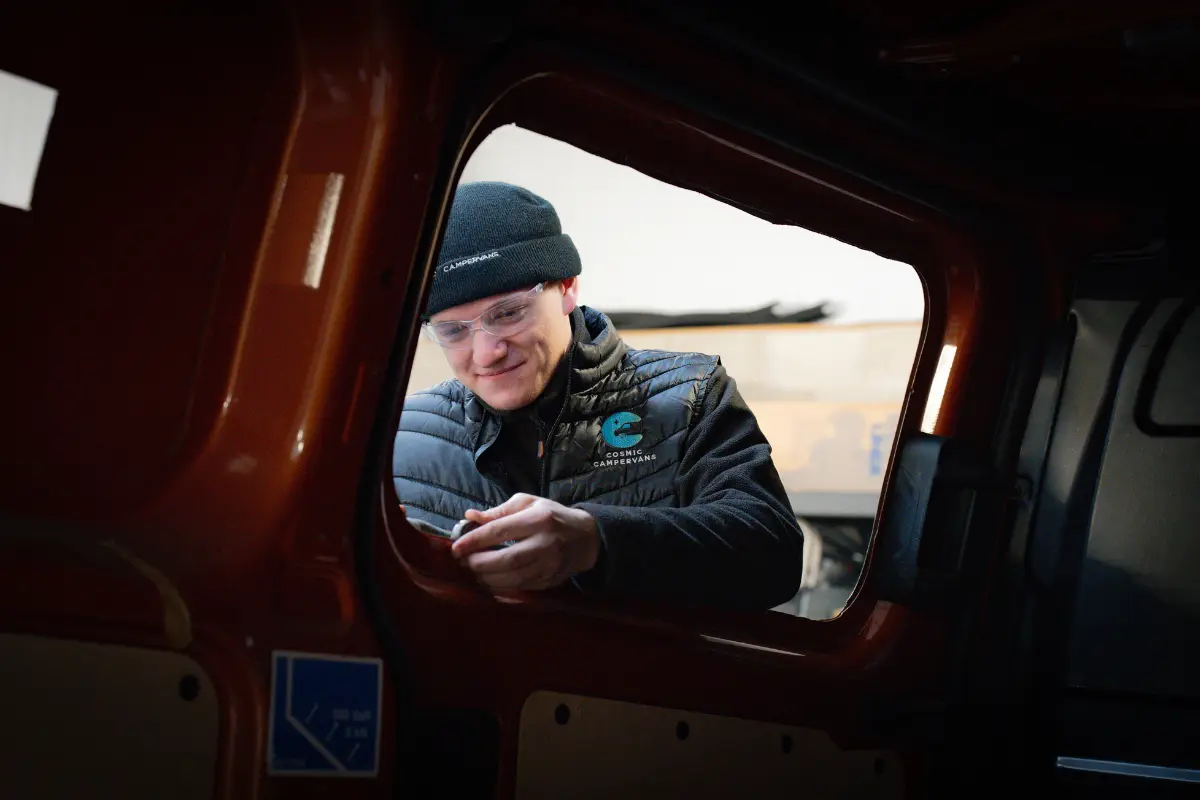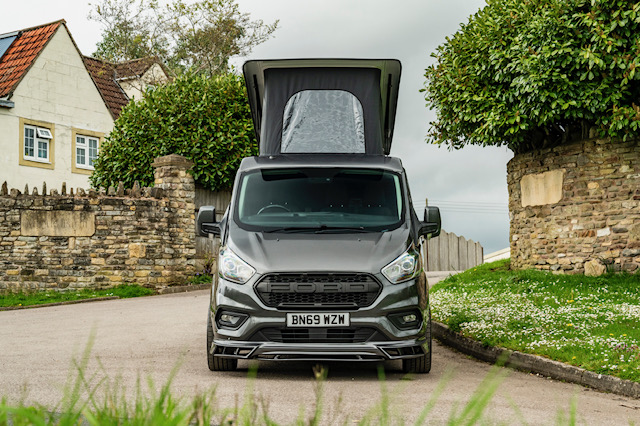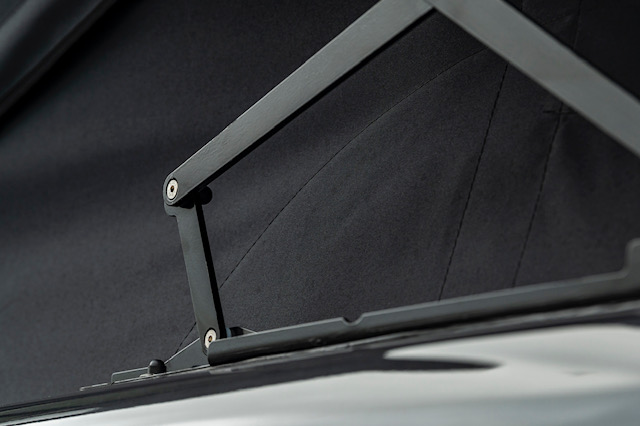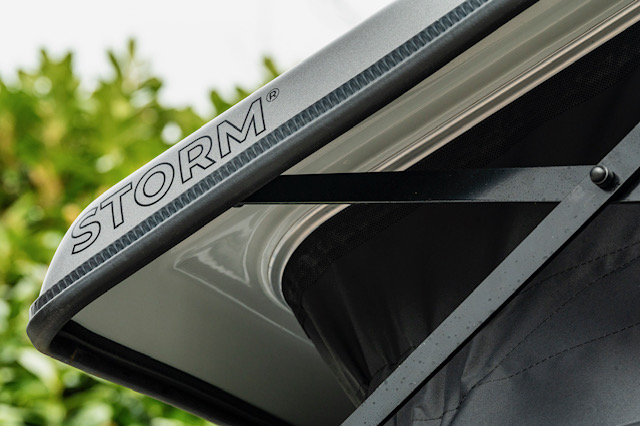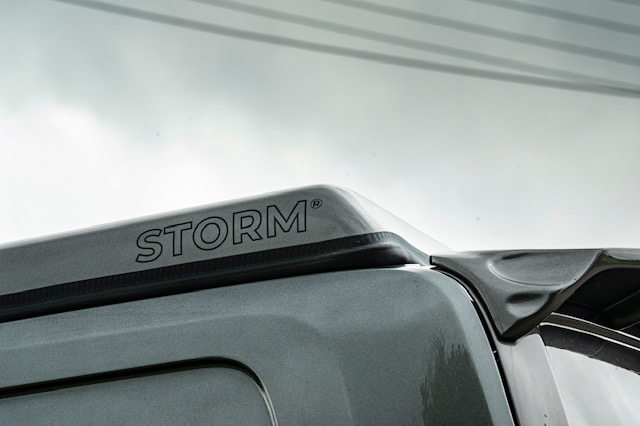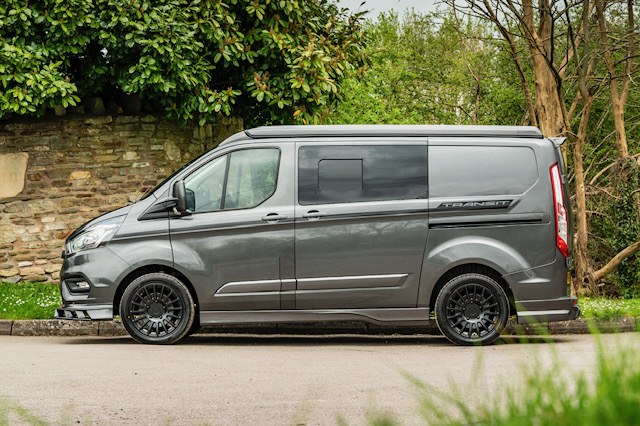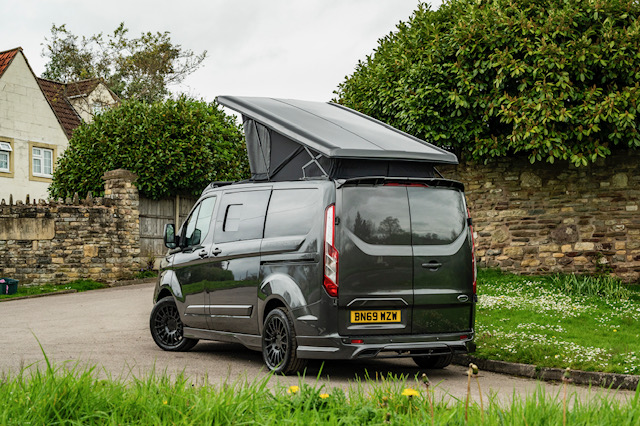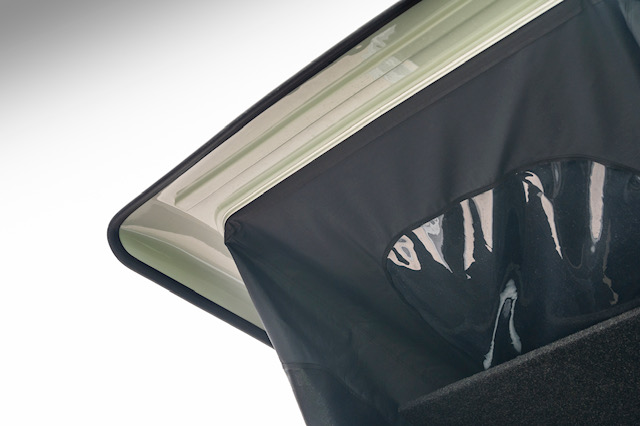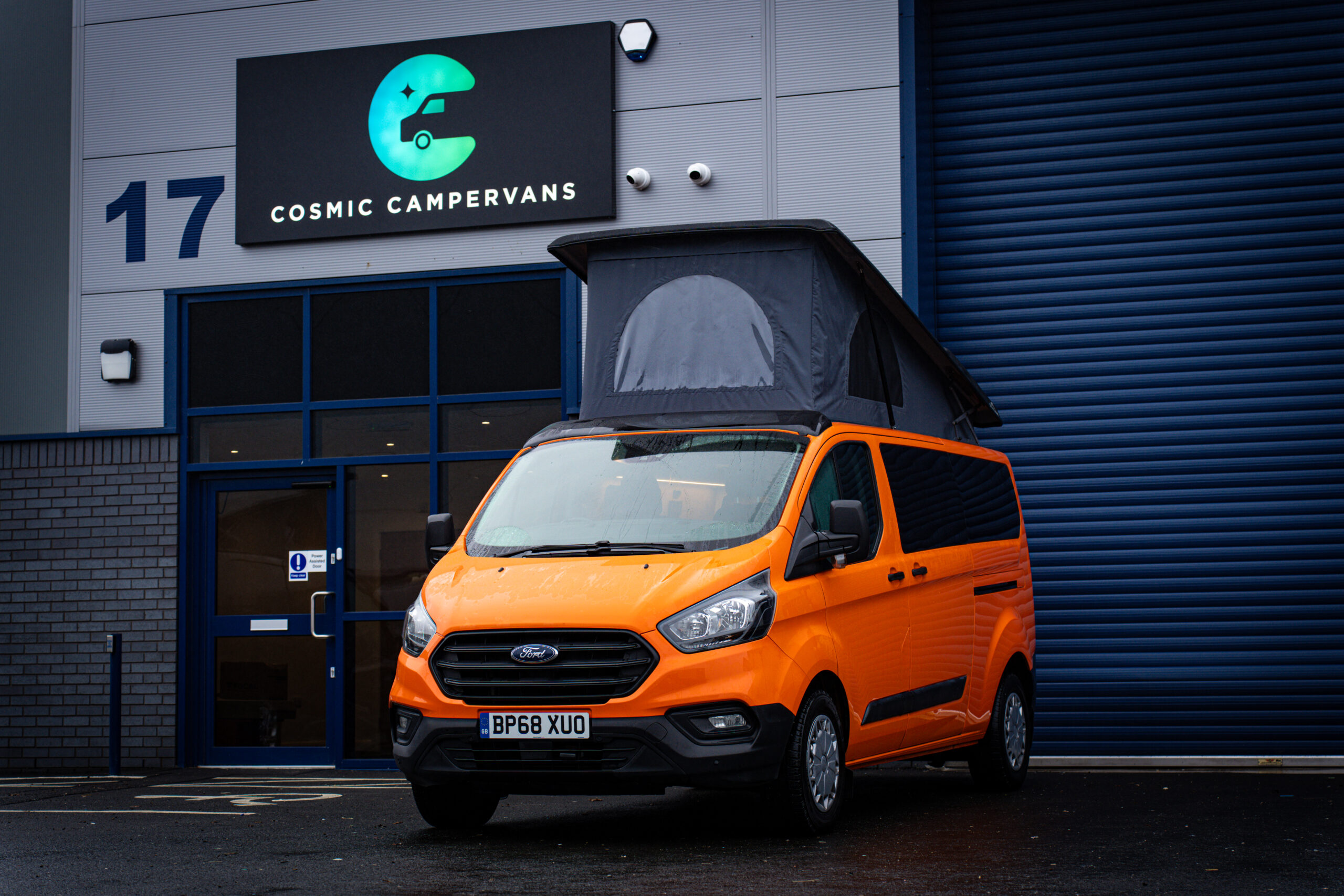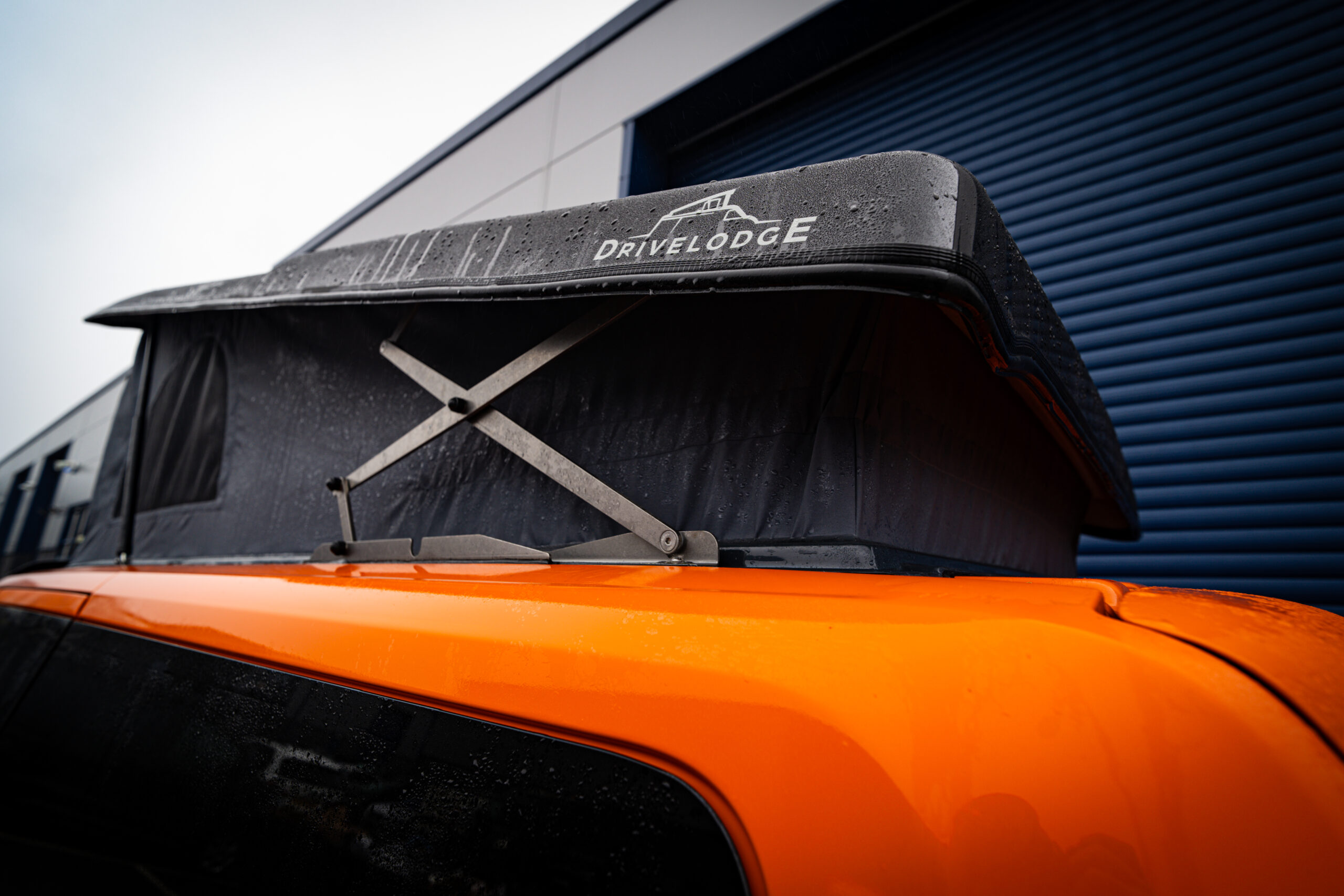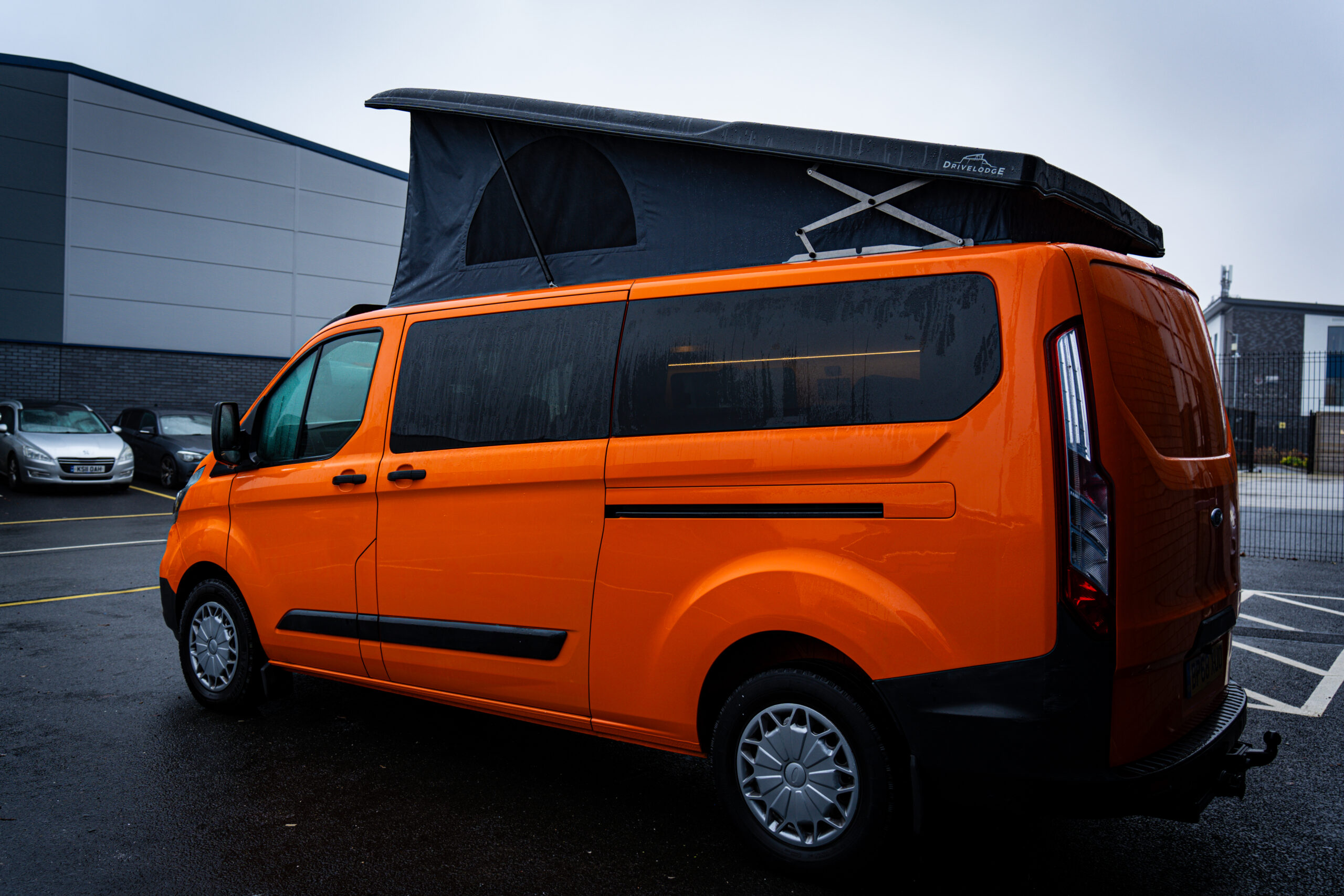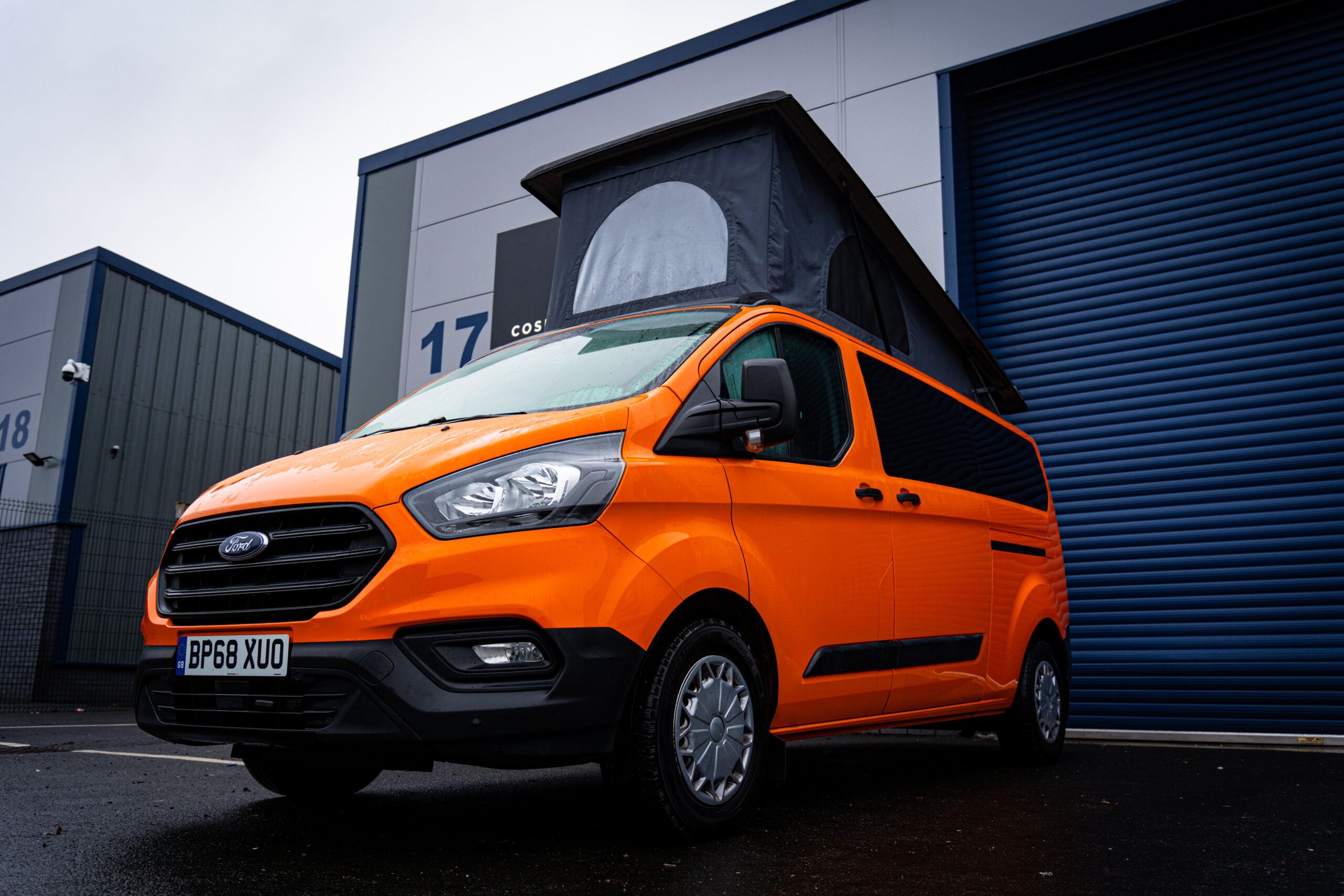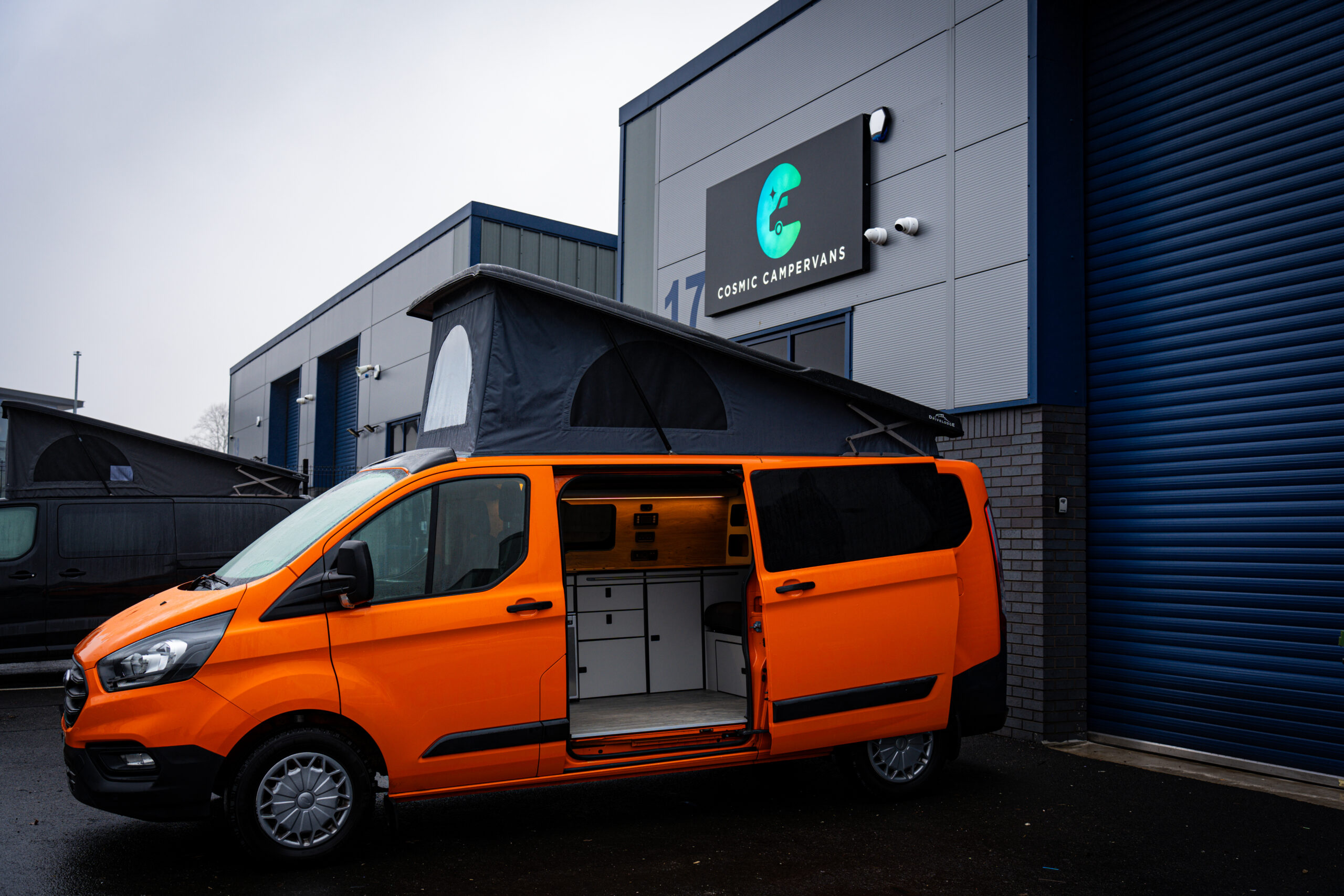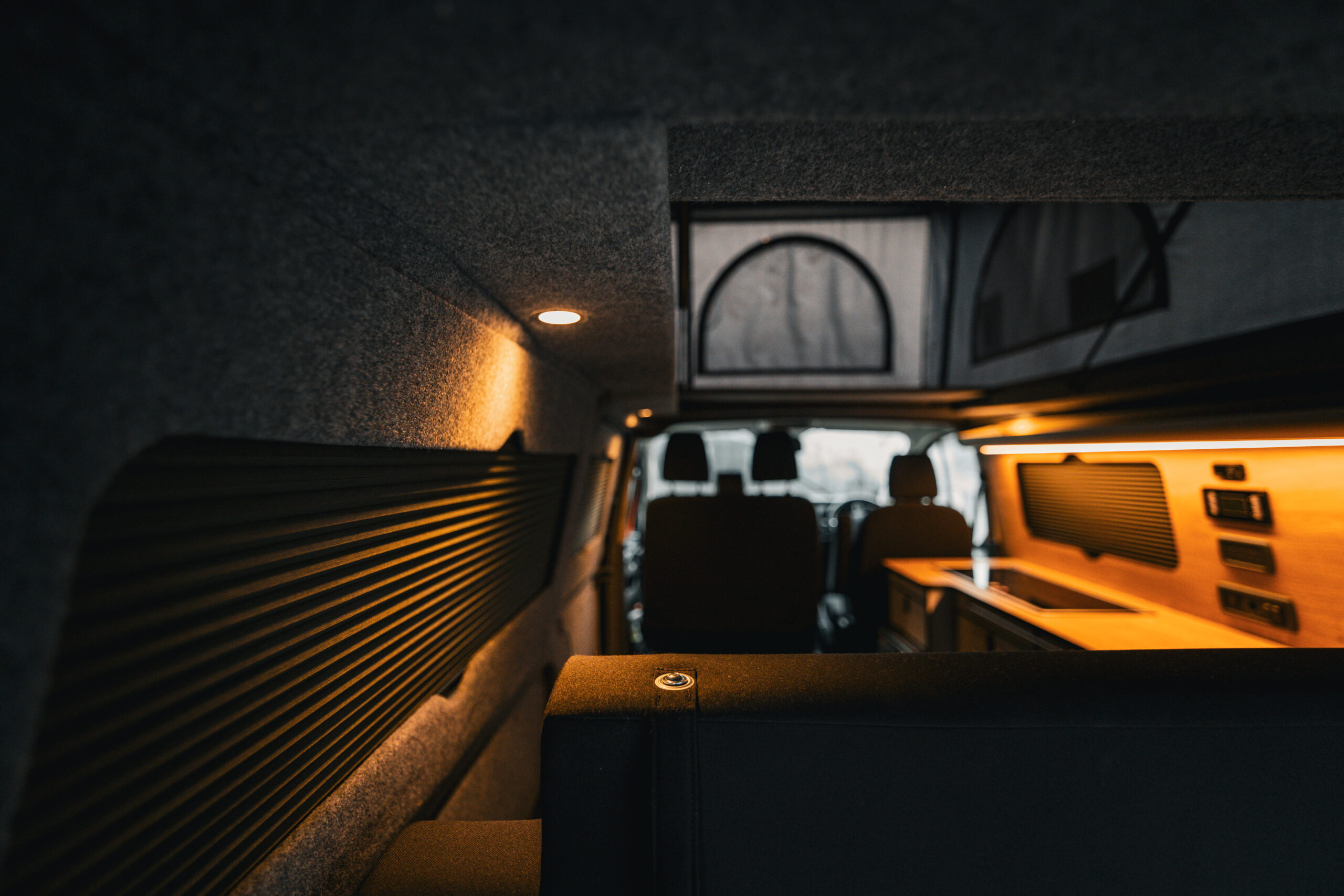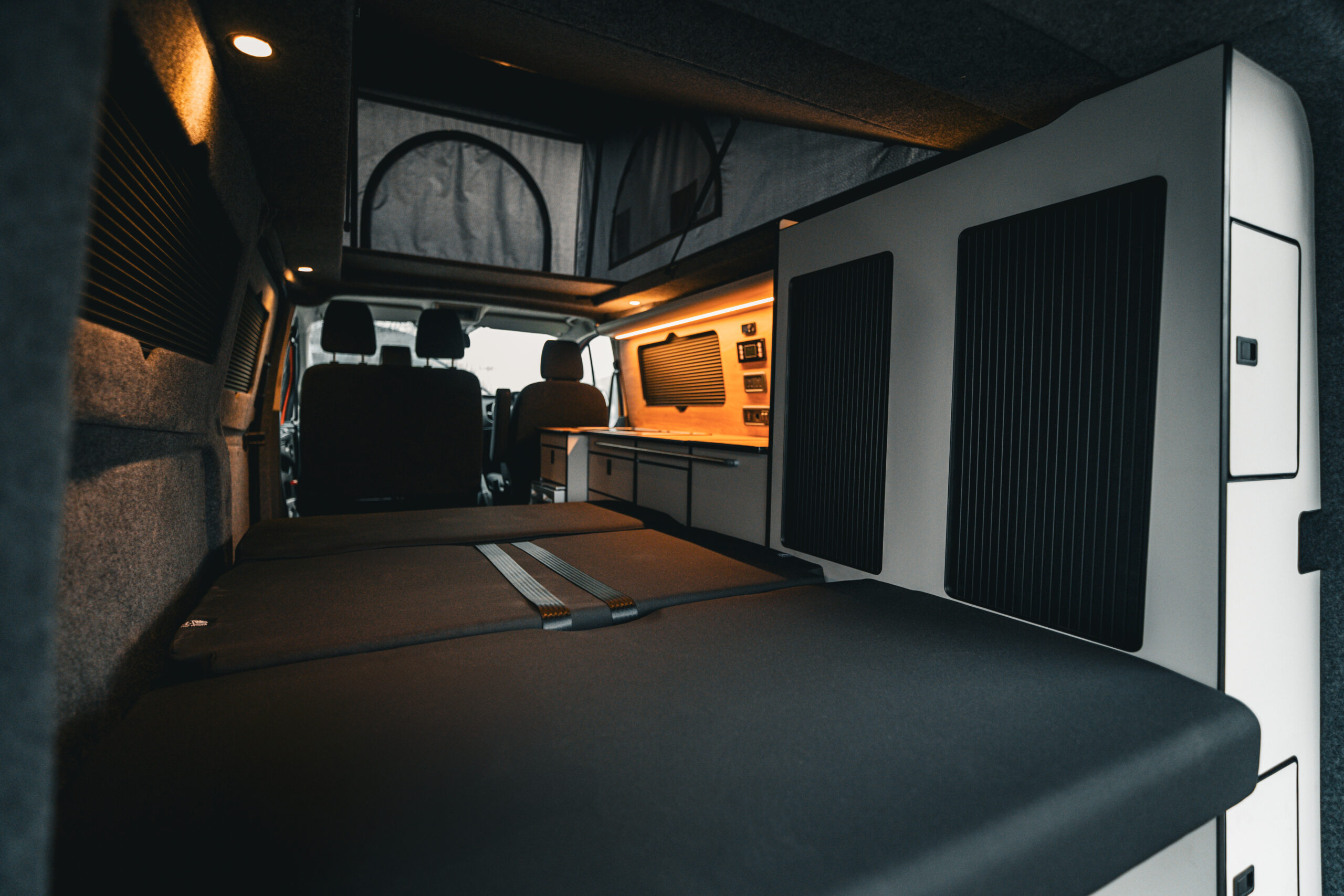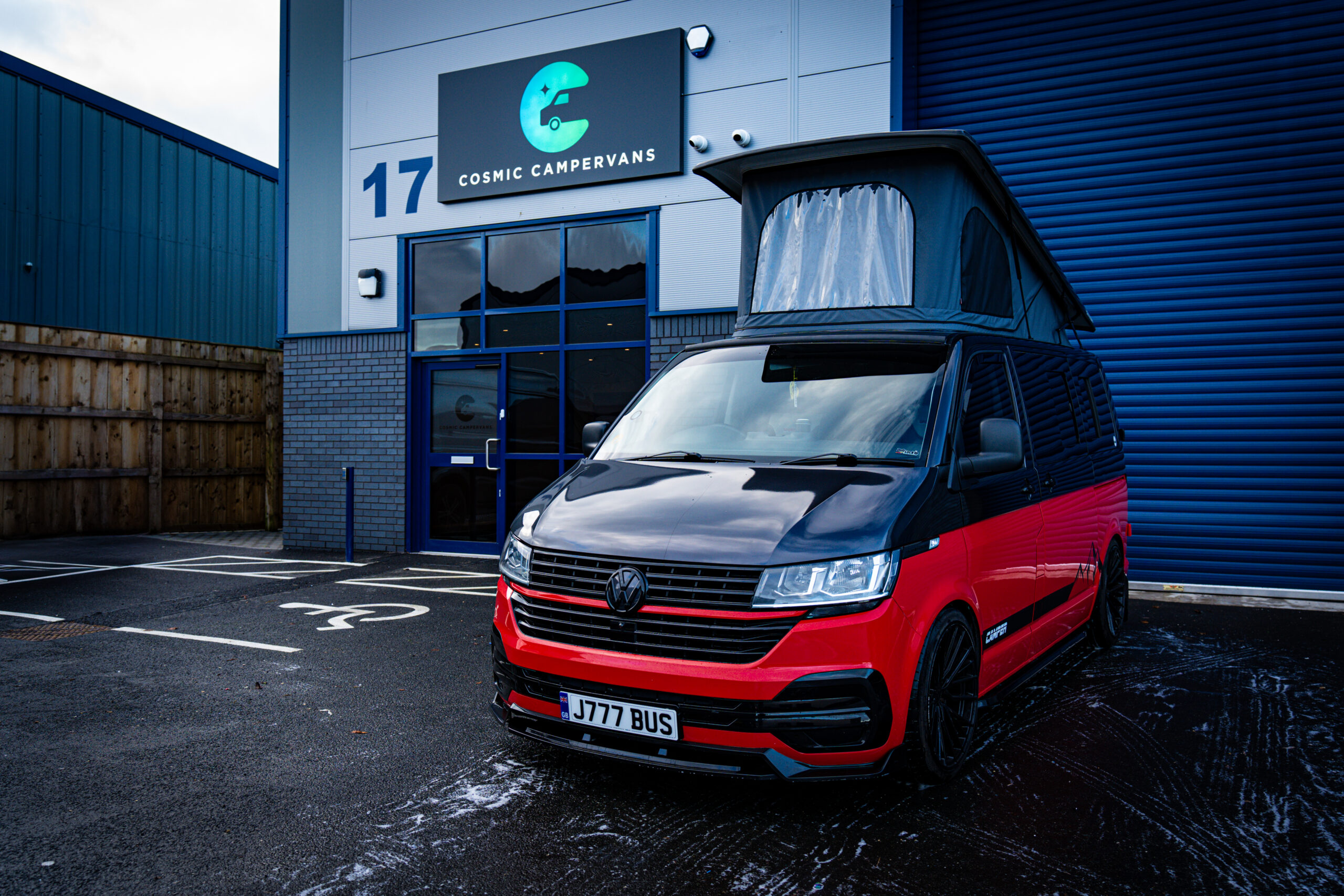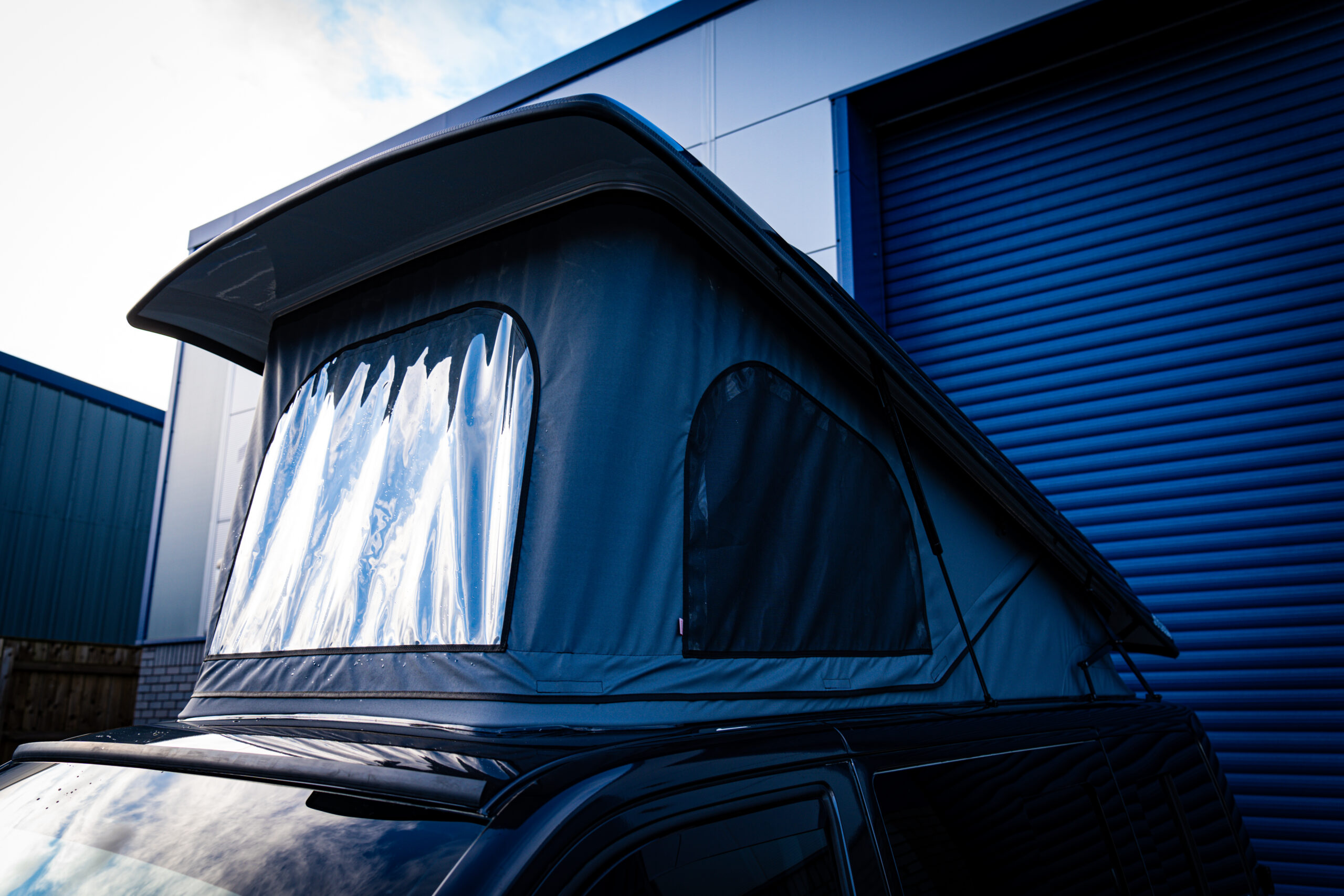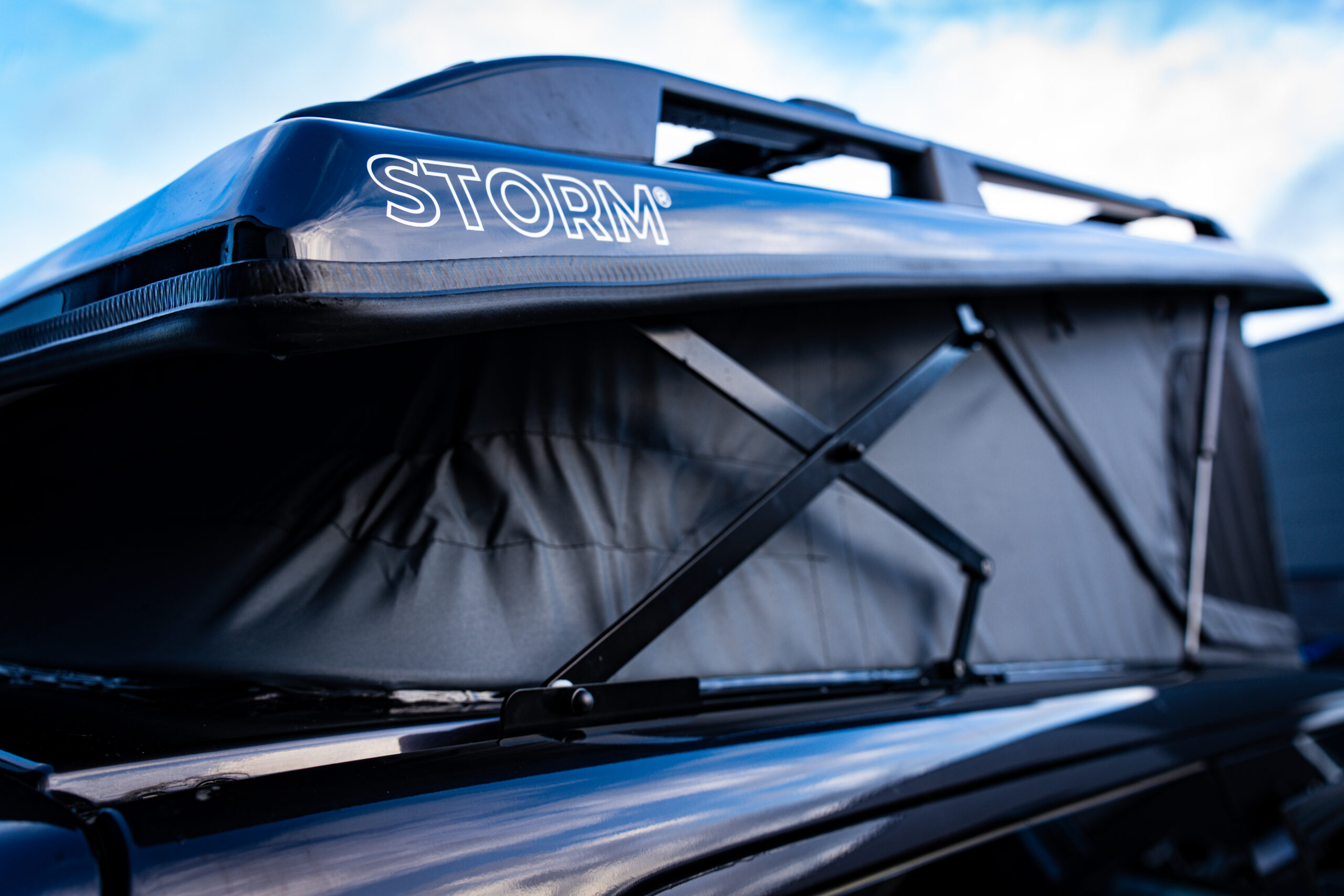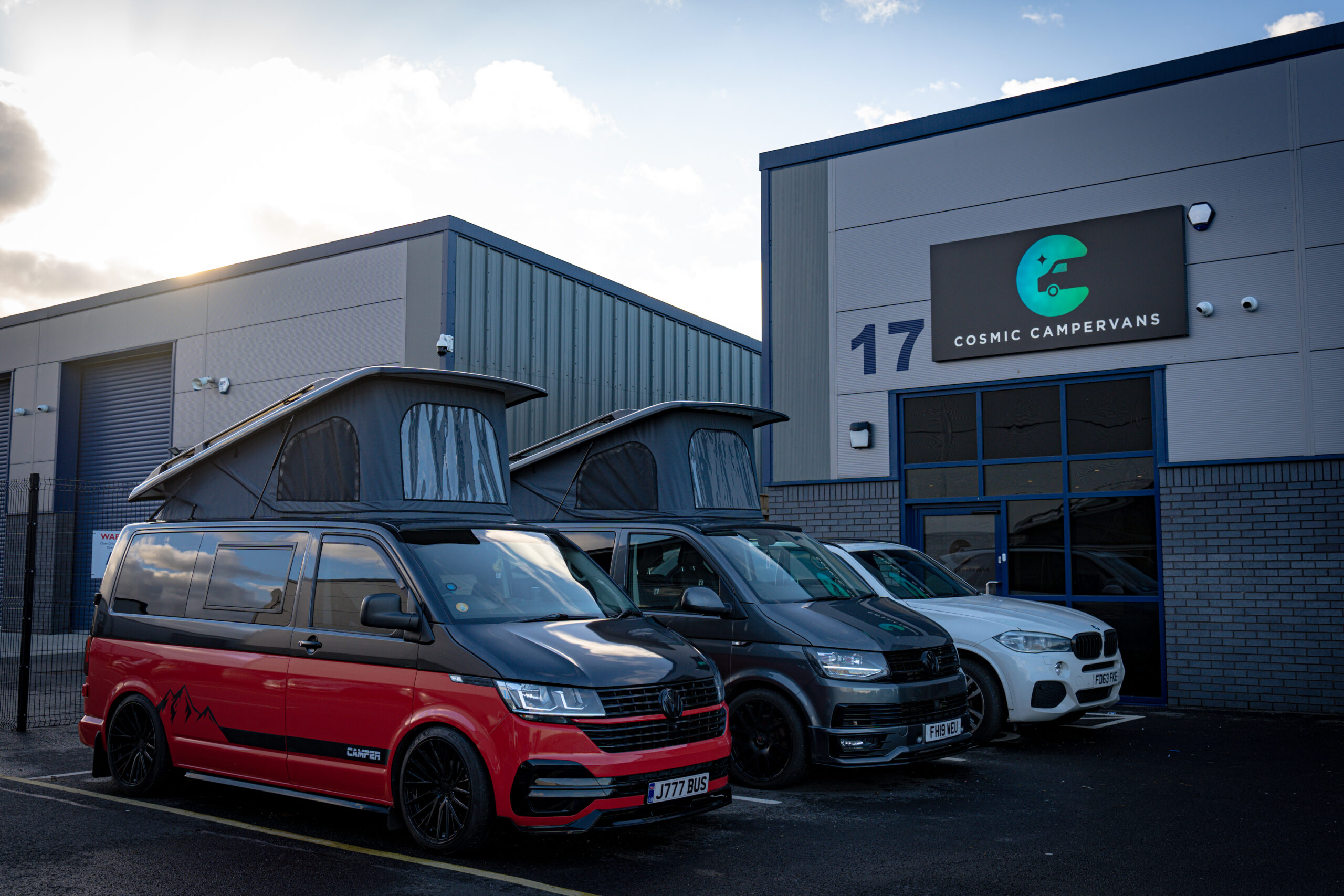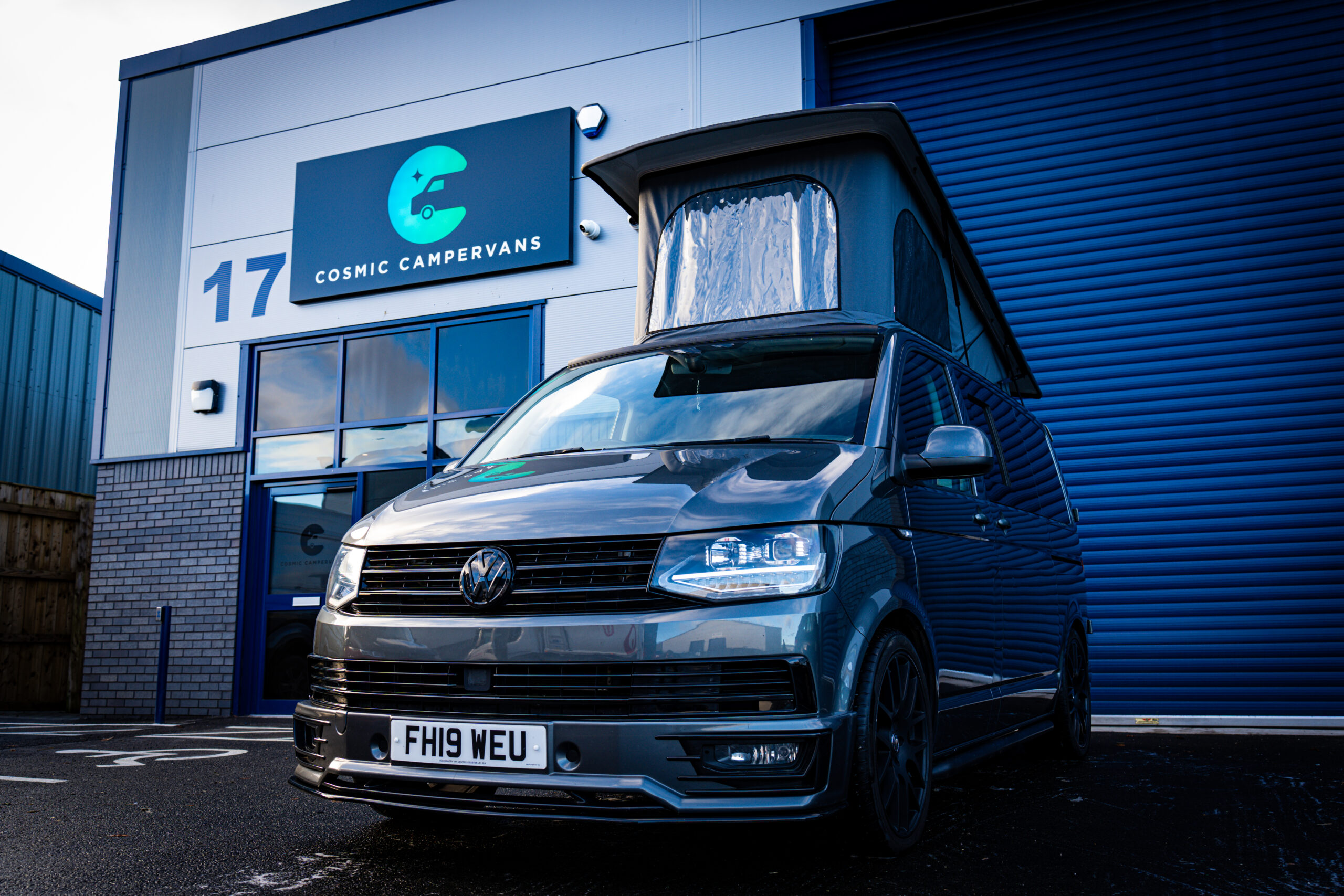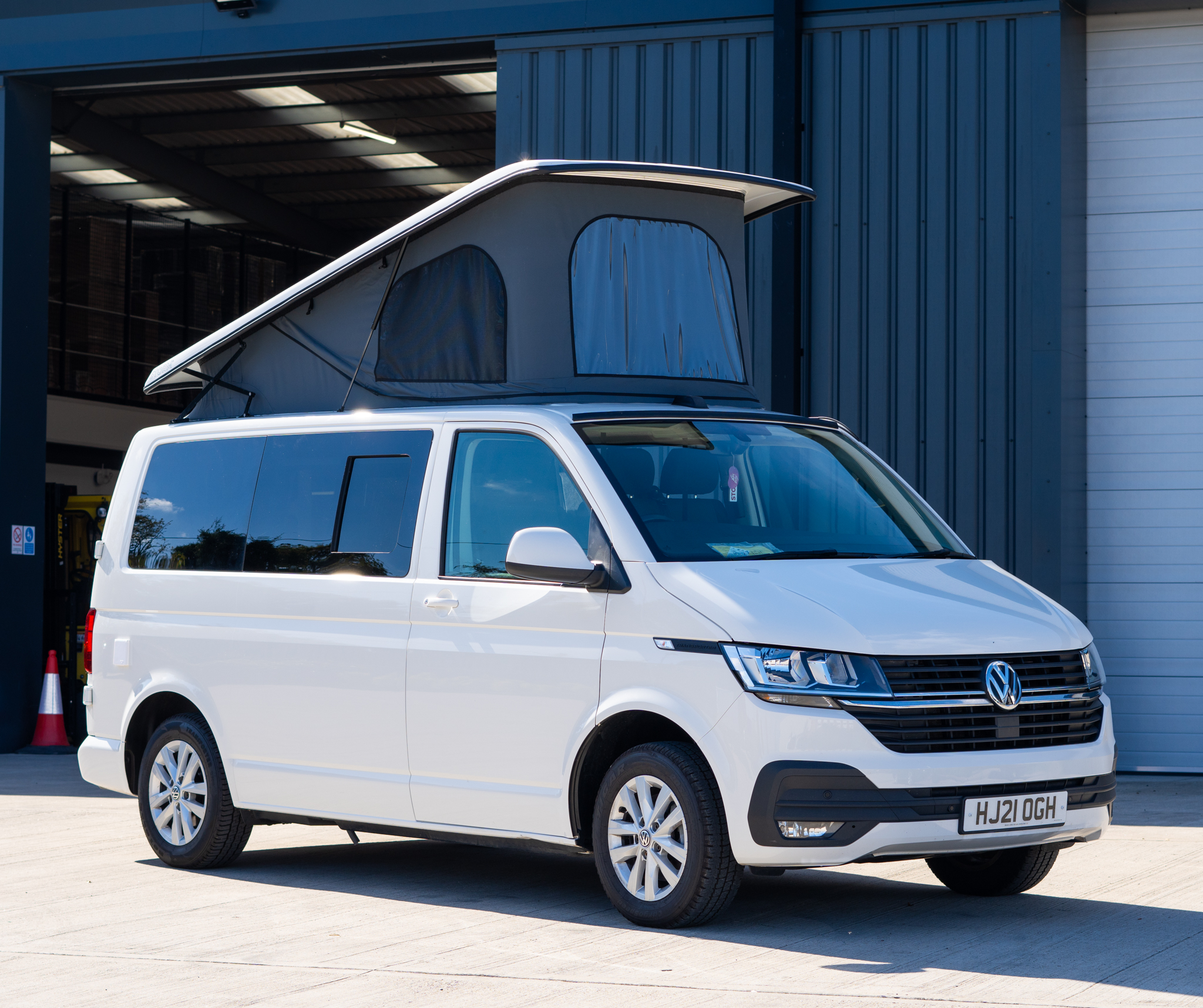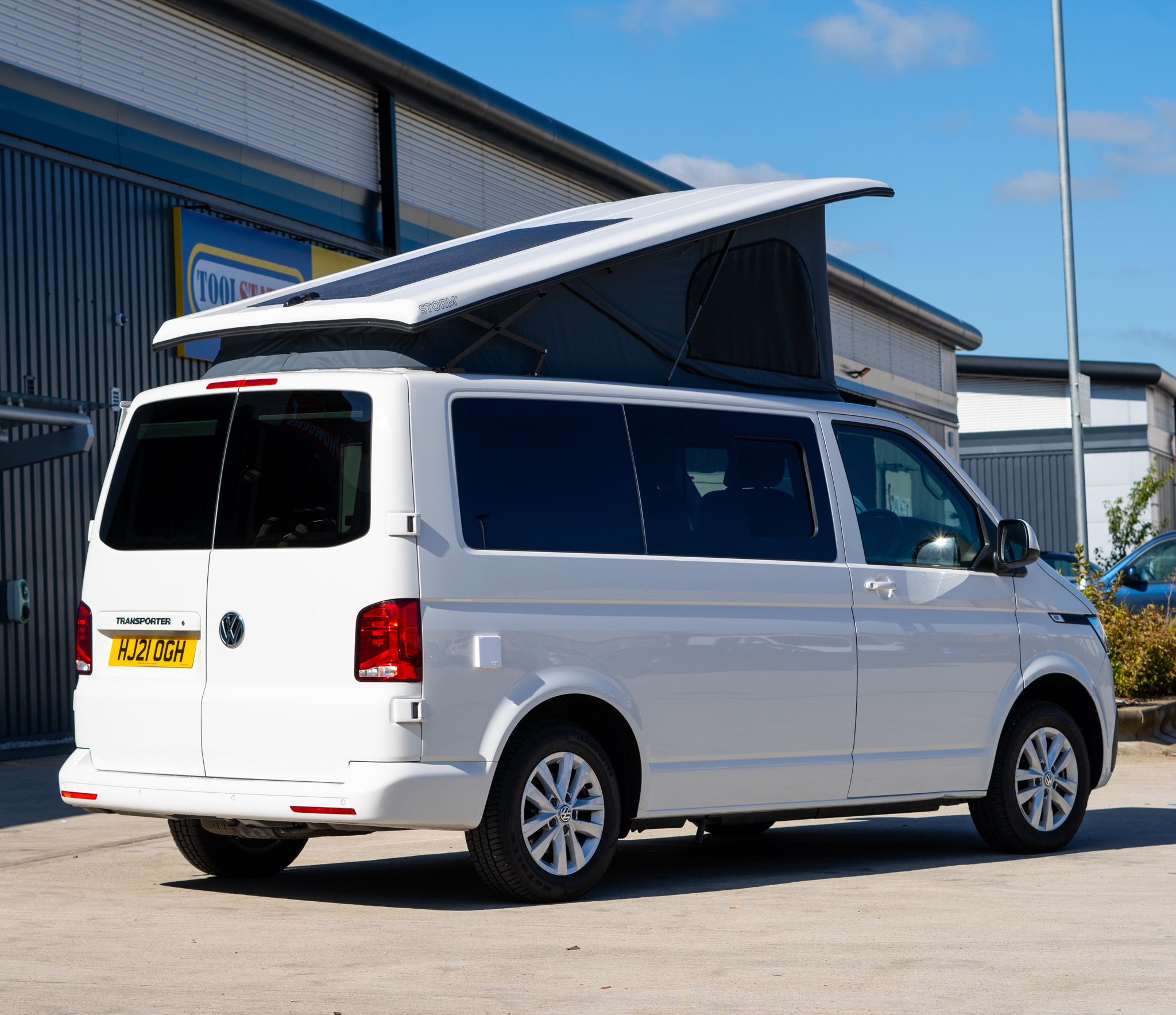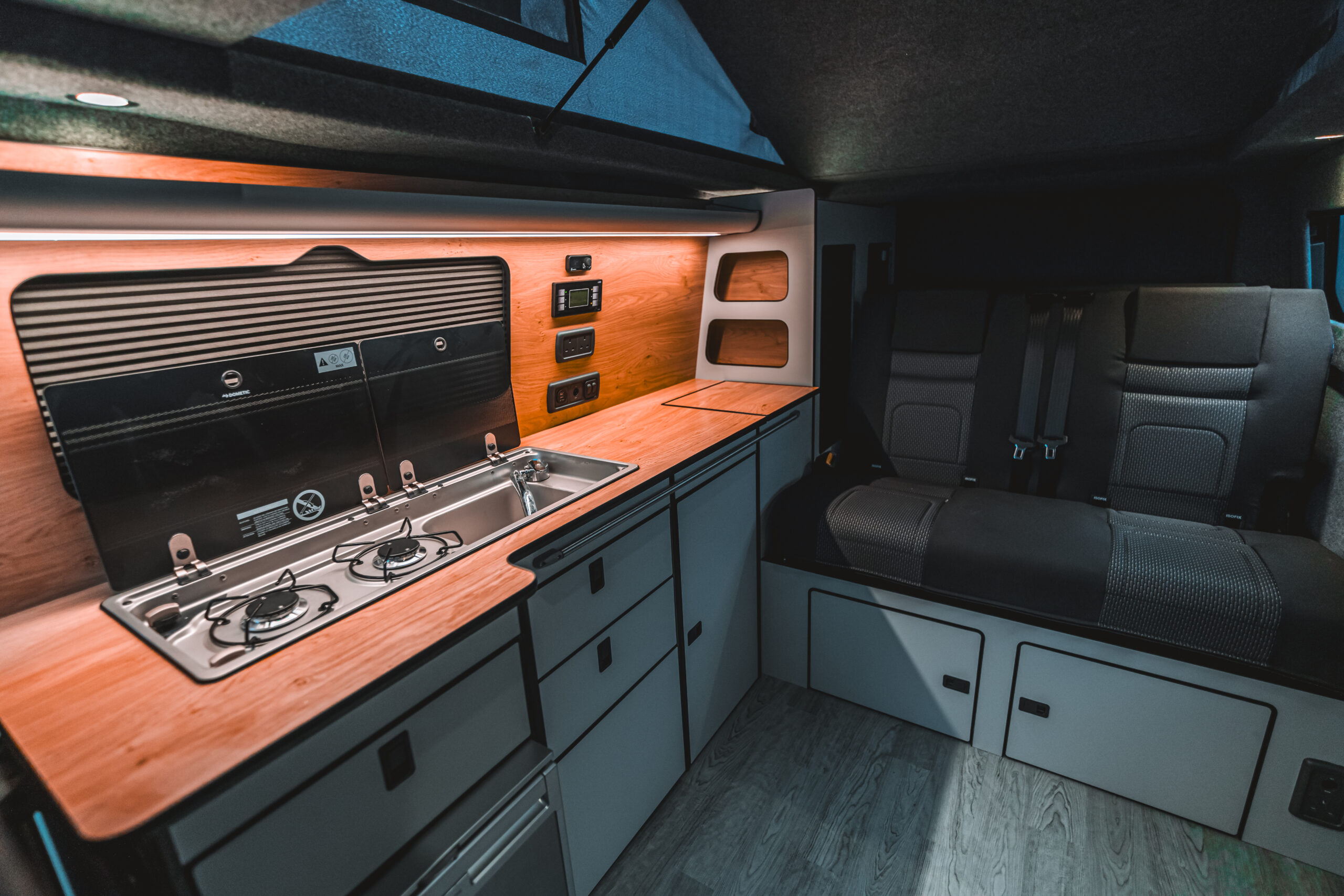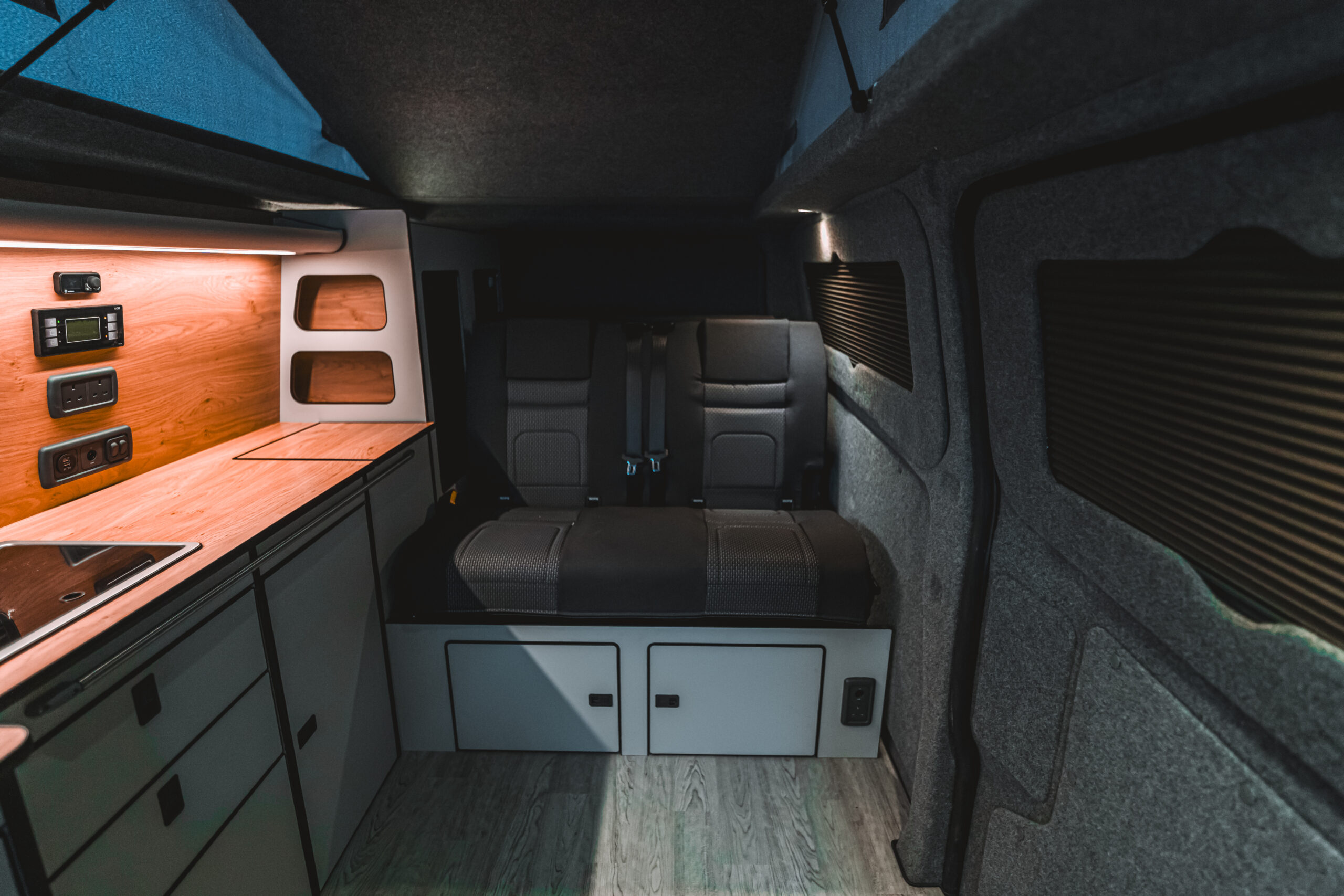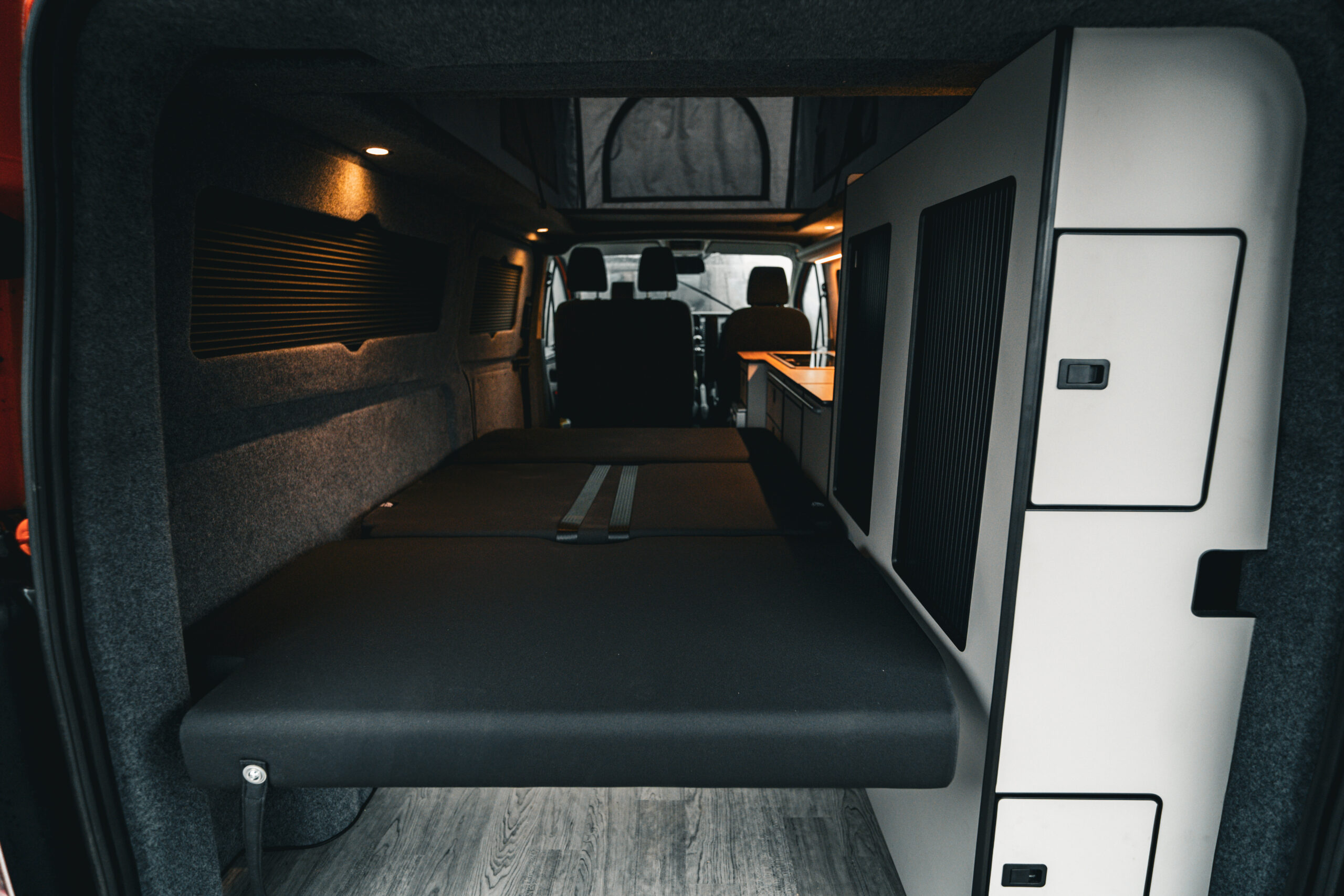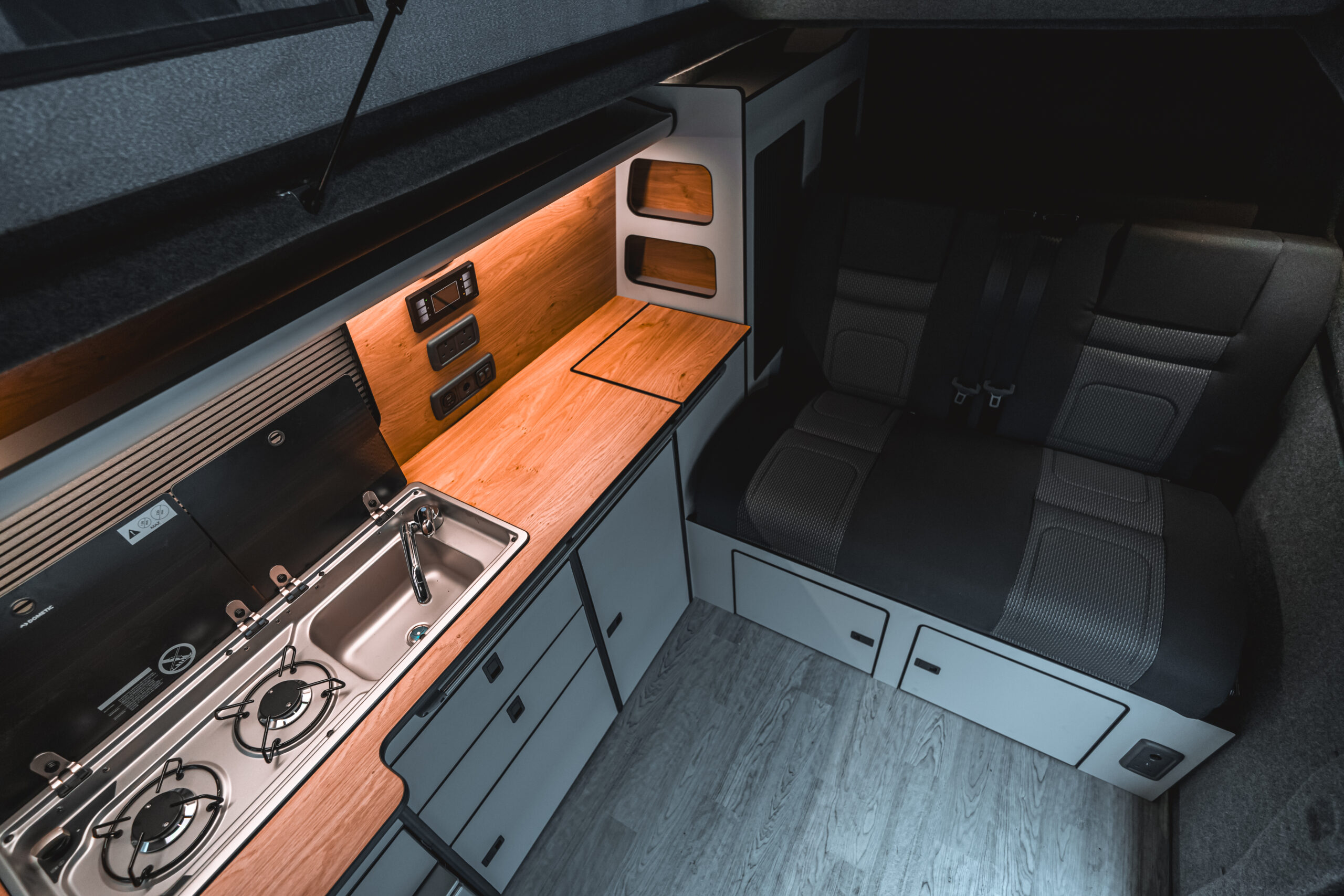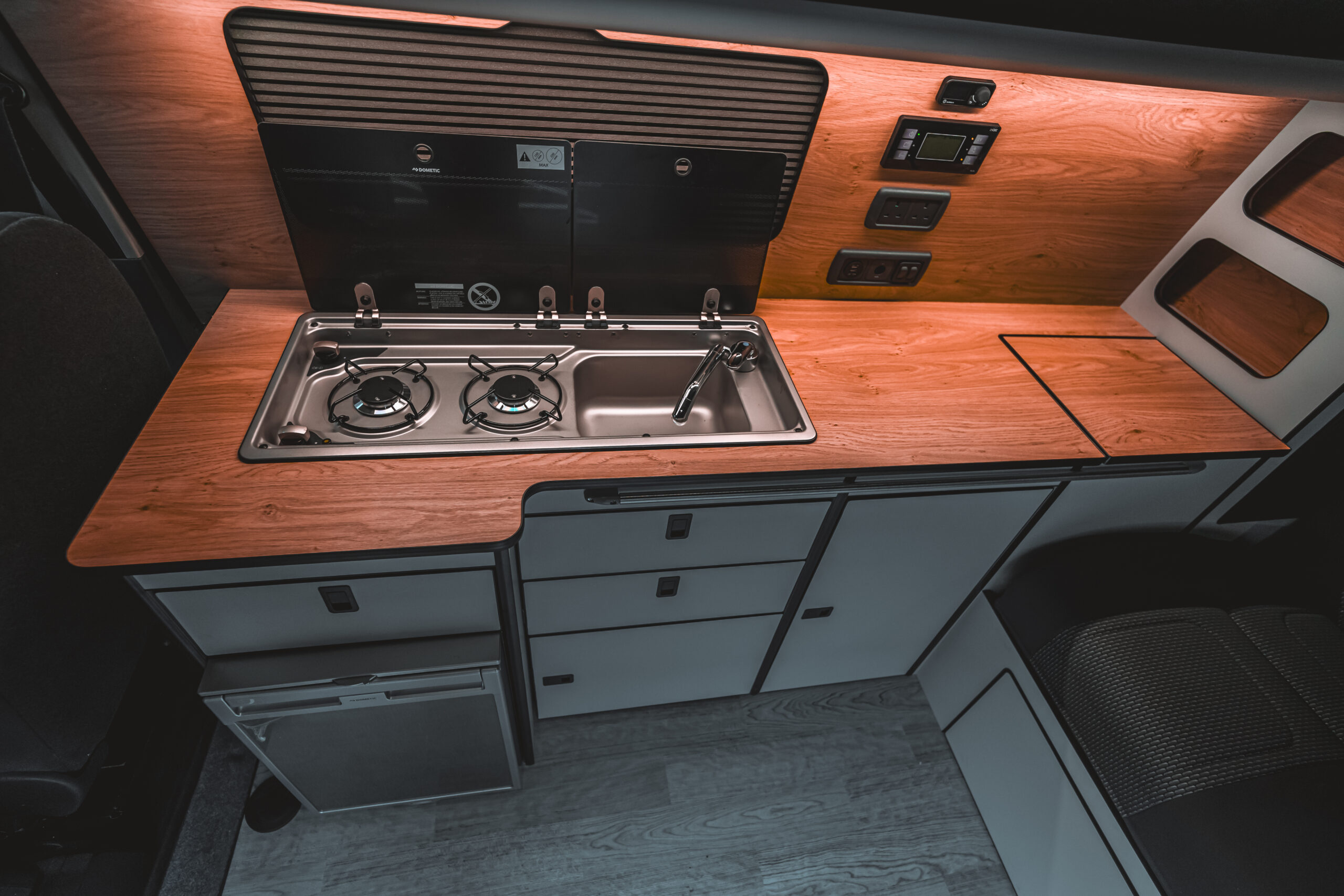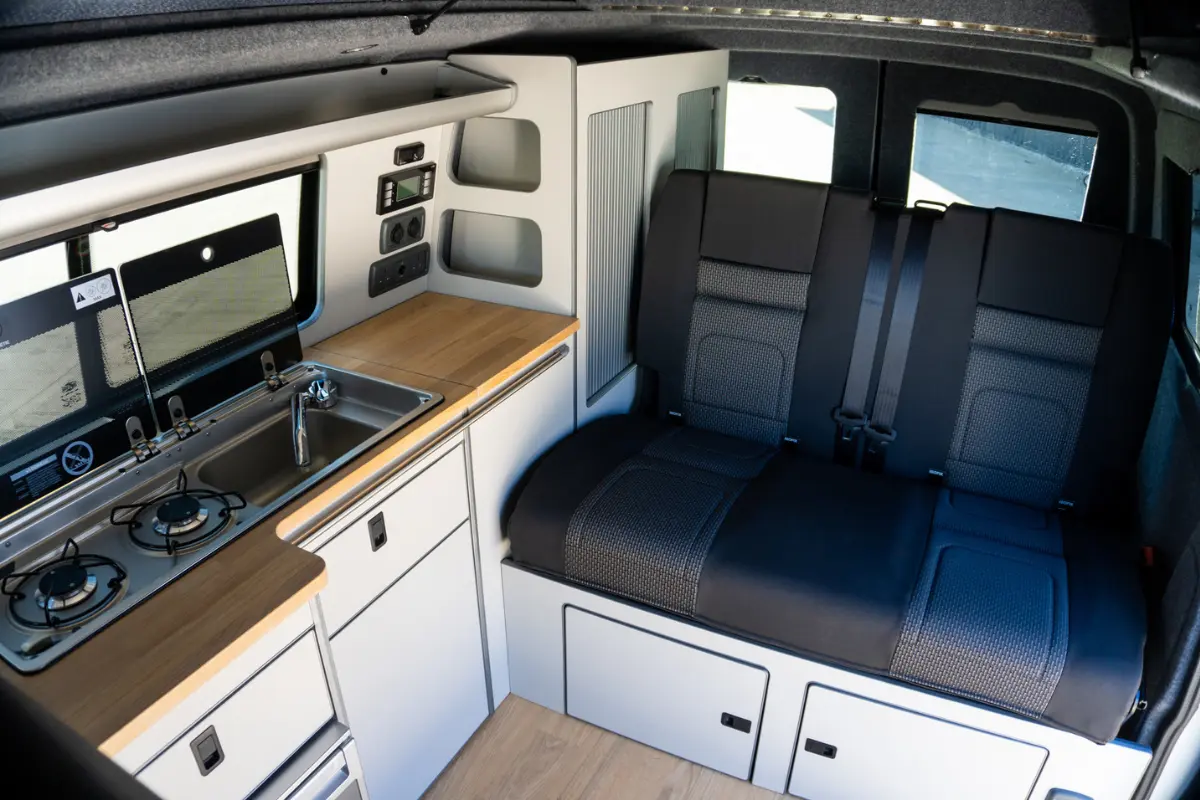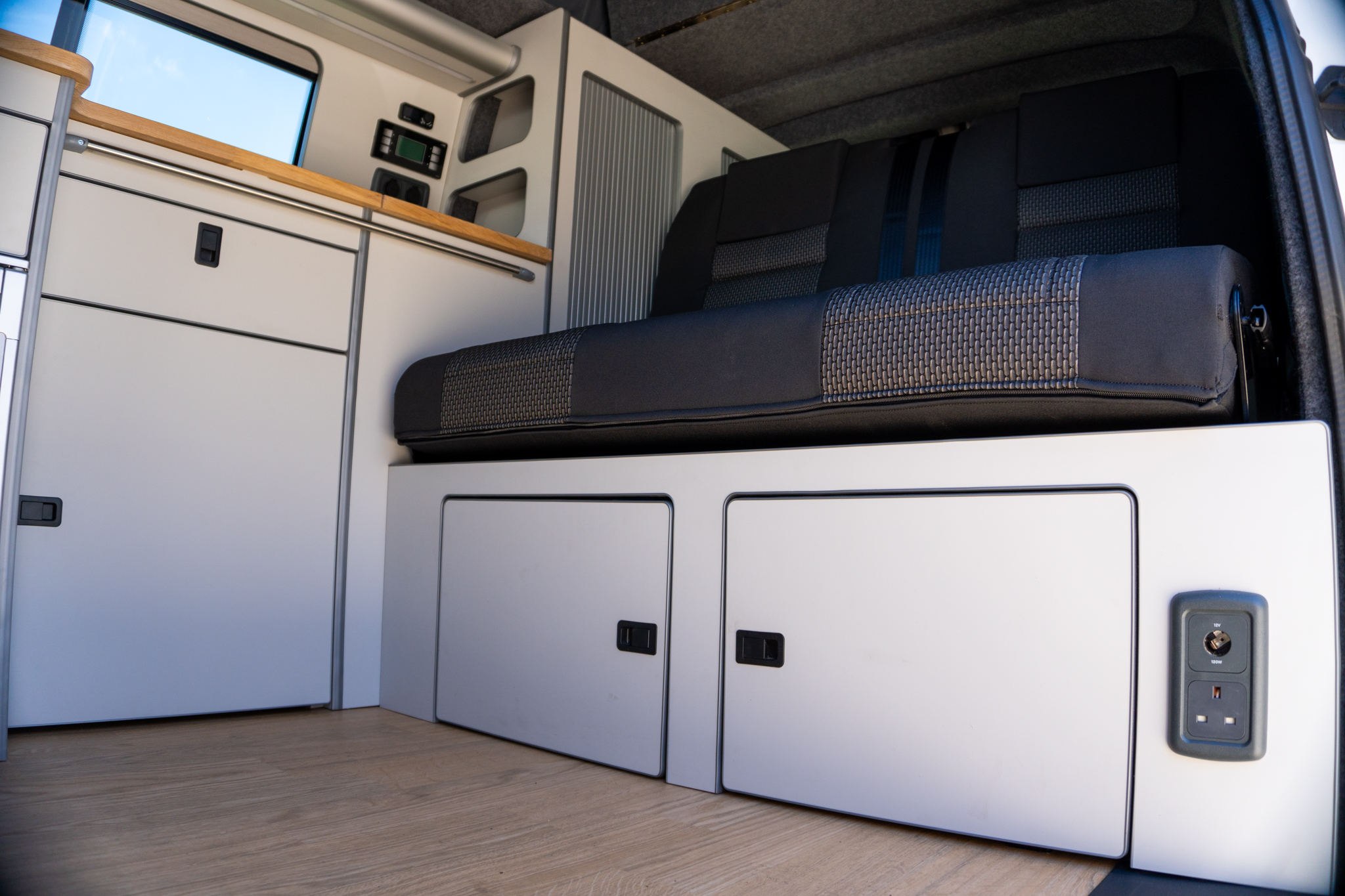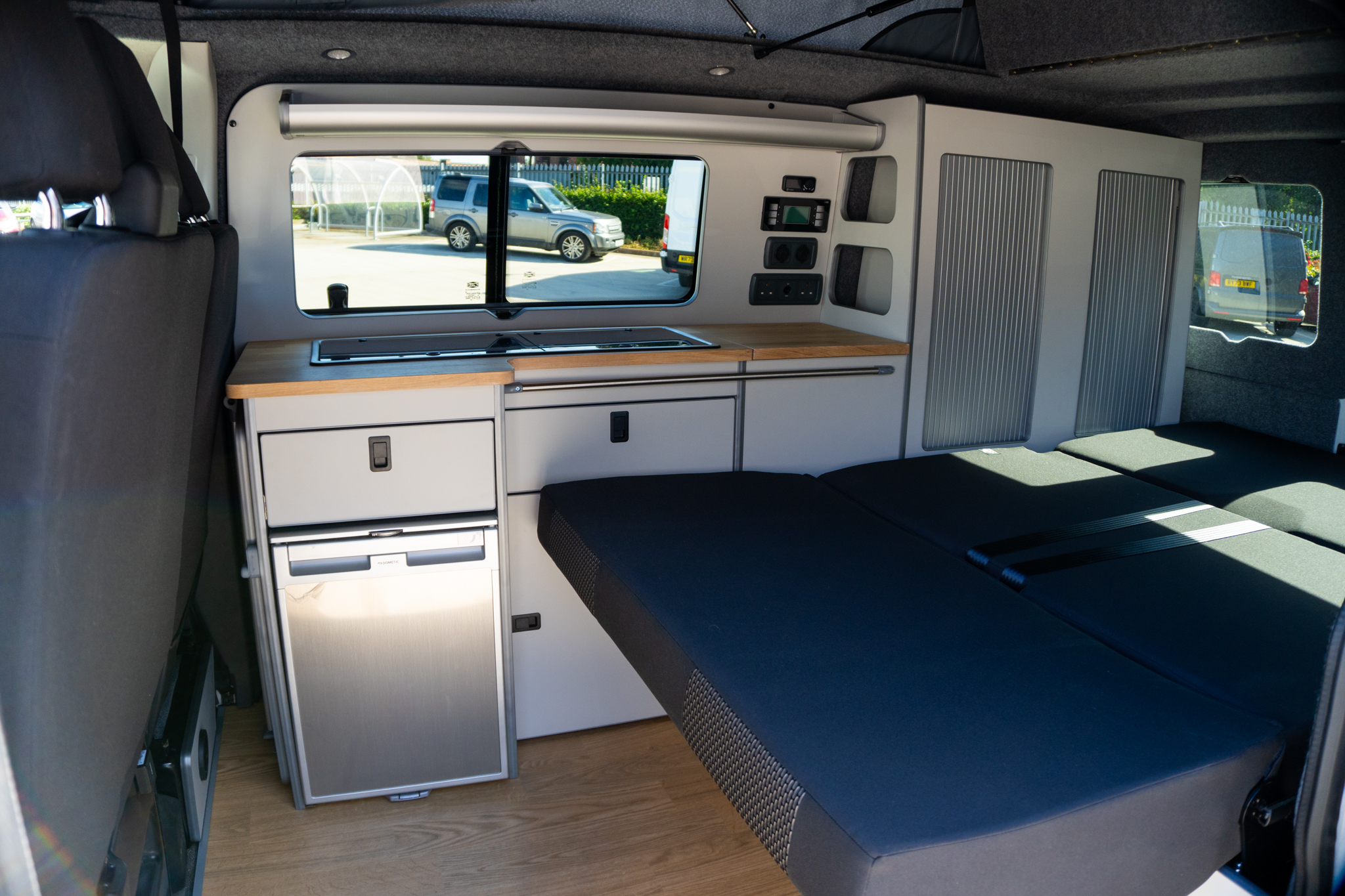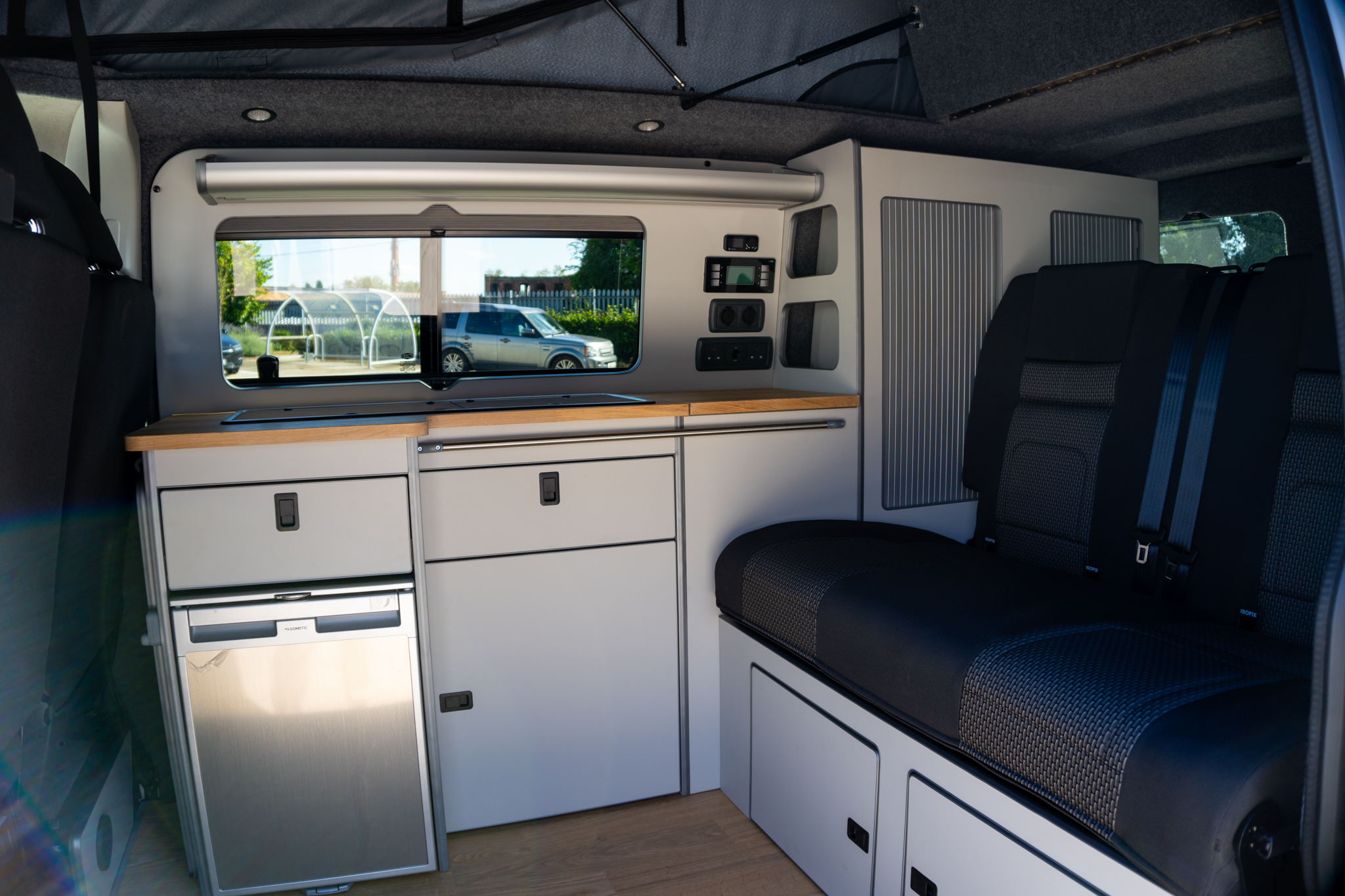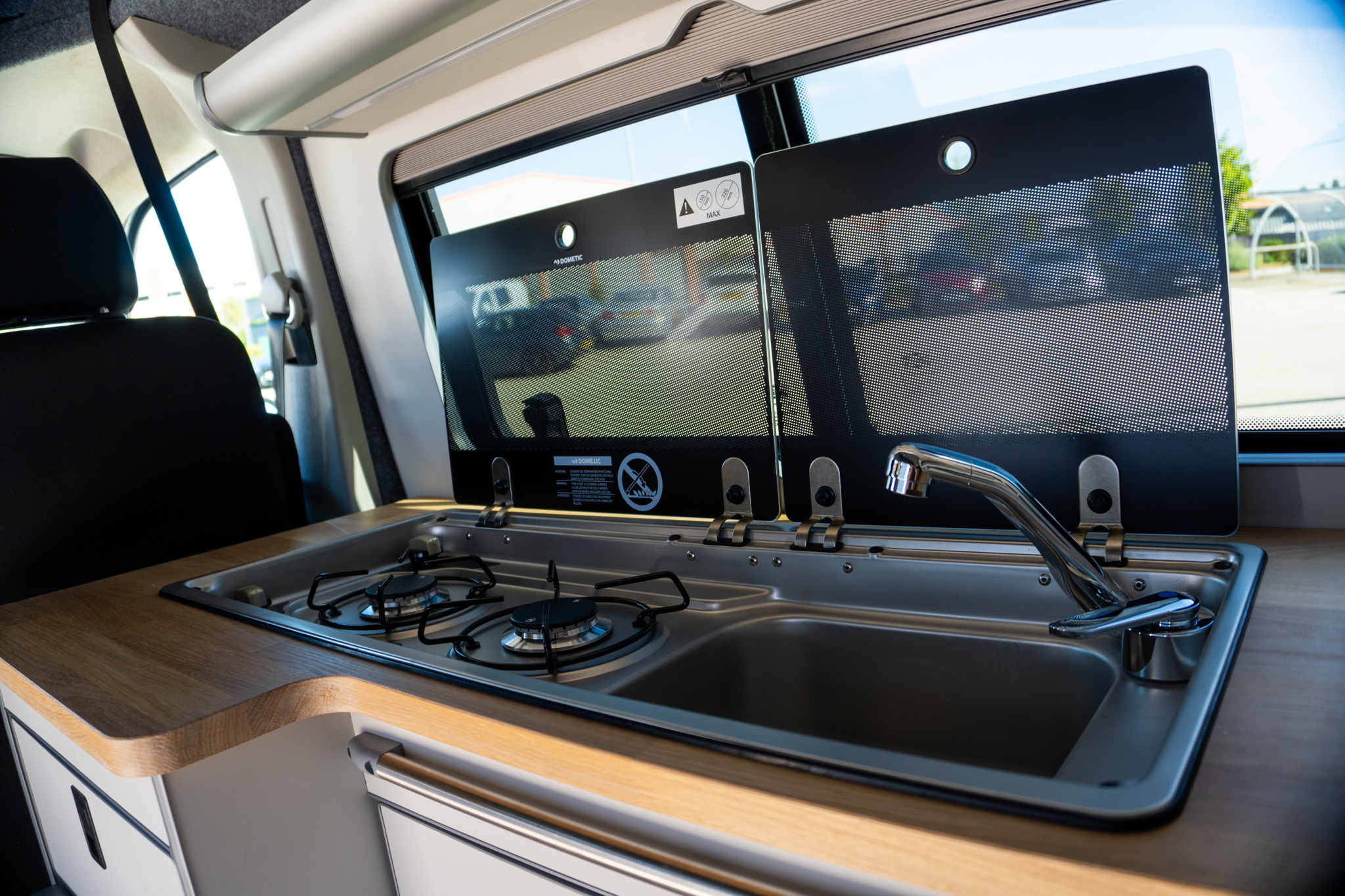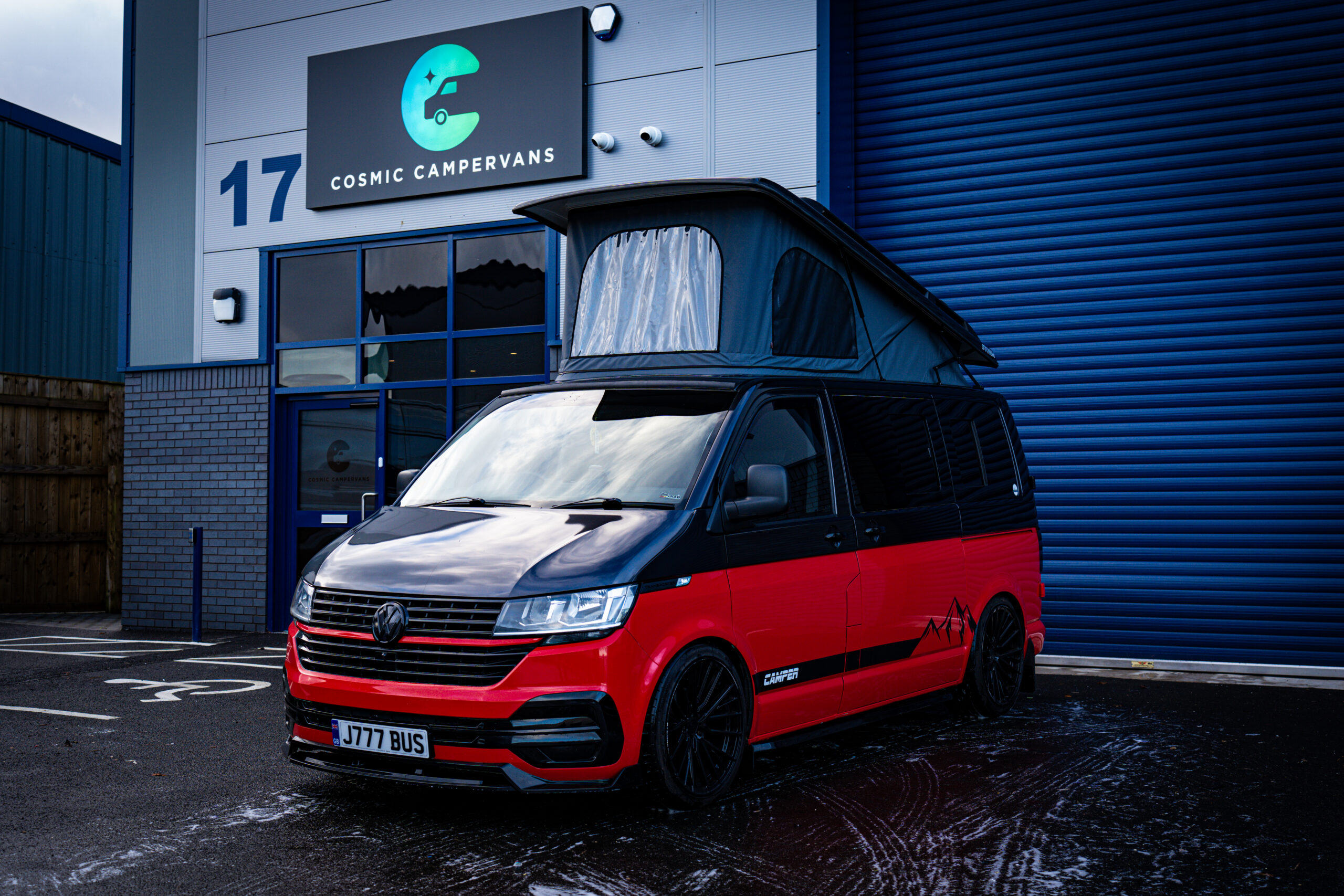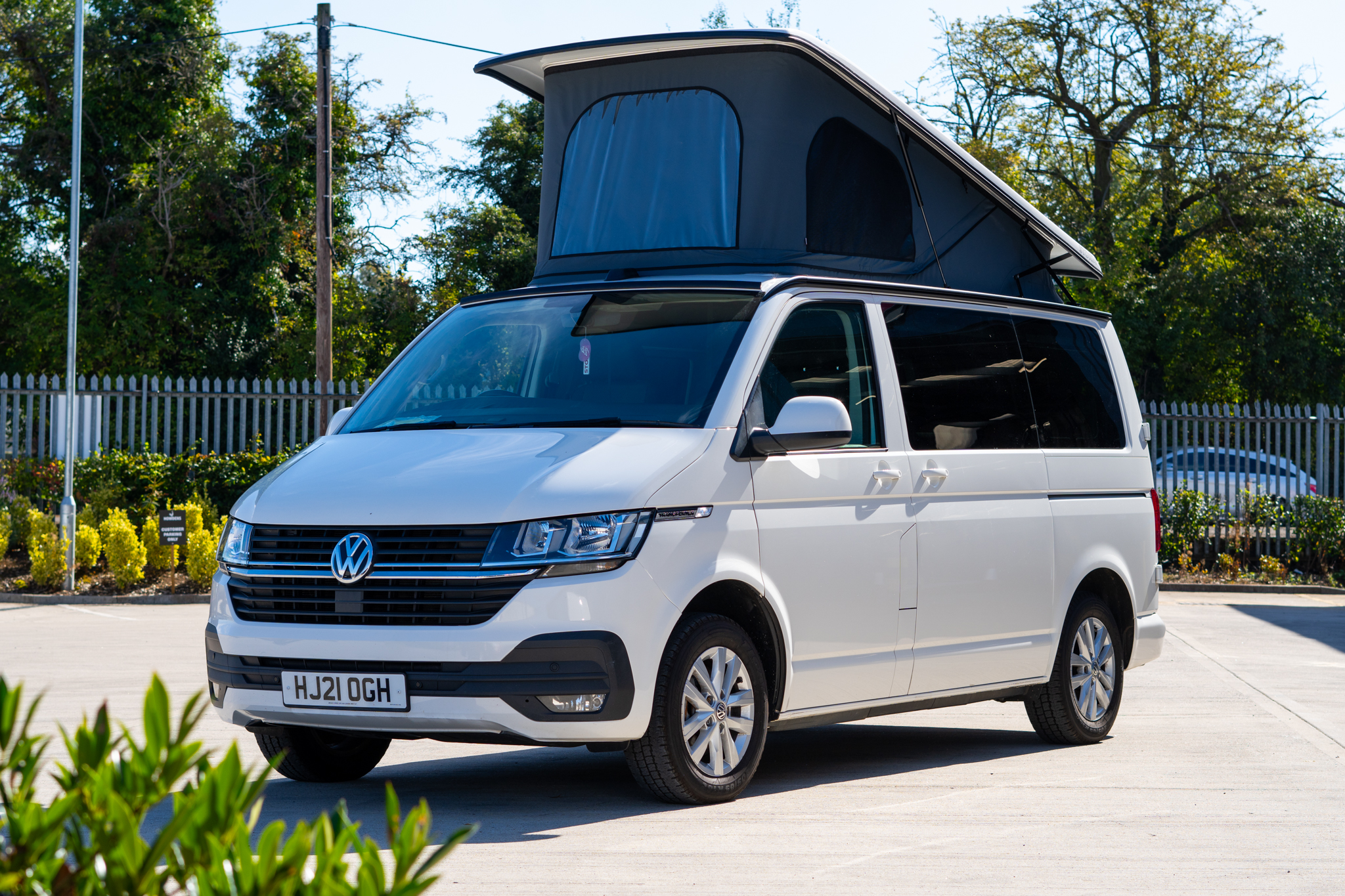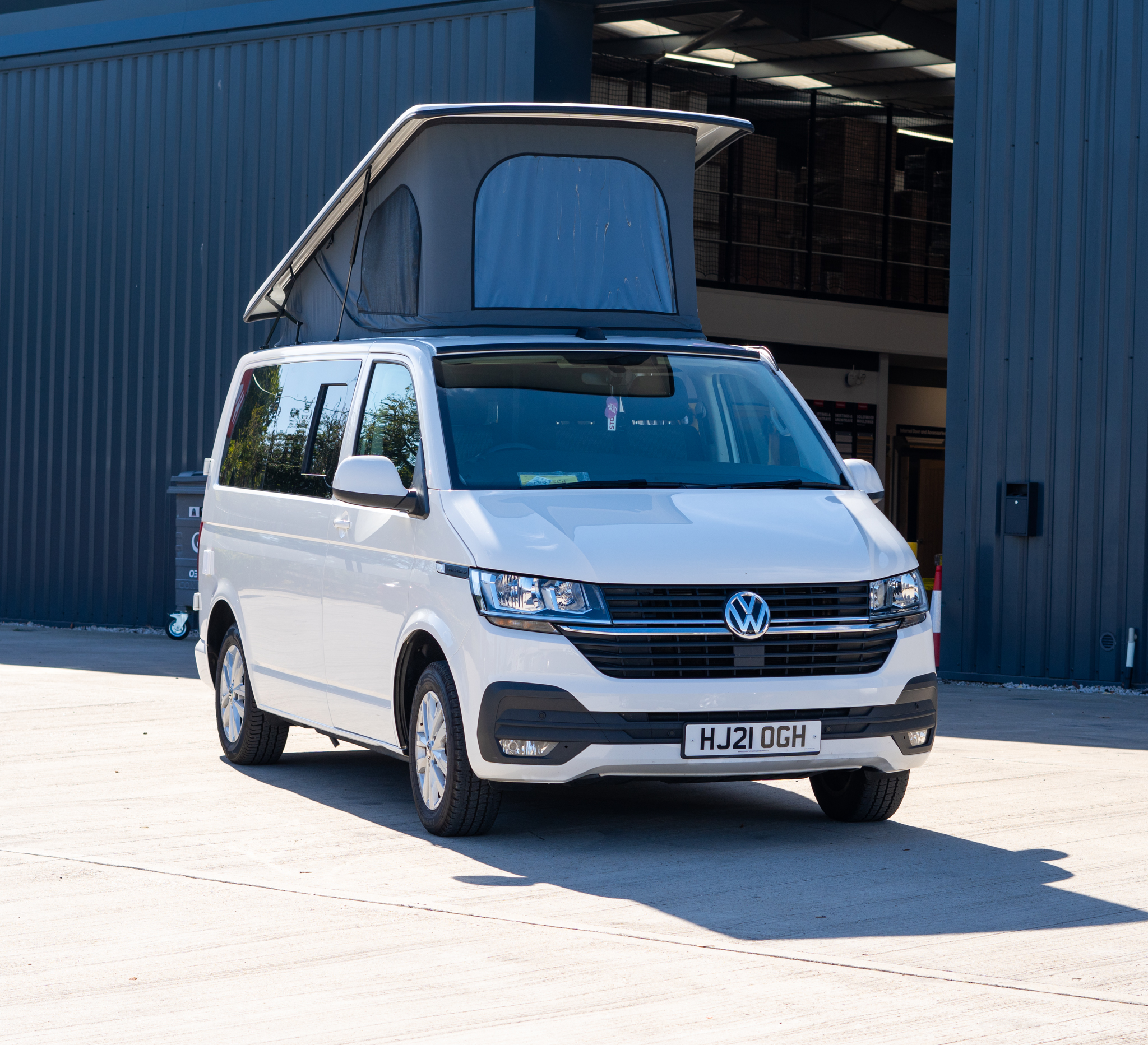Solar Panels for Ford Transit Custom
Are they Worth It?
Solar panels are one of those upgrades that get talked about a lot in the campervan world. And for good reason. They promise more freedom, more off-grid time and less reliance on campsites.
But if you’ve just bought or converted a Ford Transit Custom, you might be wondering… is solar actually worth it for your setup?
In this blog, I’m going to break it all down for you. Whether you’re a weekend explorer or someone chasing full-time van life, we’ll look at what solar actually offers, when it makes sense, when it doesn’t, and how to build a system that fits your style of travel.
All based on what I’ve learned building high-end custom vans for real people using them out on the road. Let’s dive in.
Thinking About Solar Panels for Your Ford Transit Custom?
If you’re anything like me, you’ve probably stood at the back of your Transit Custom, coffee in hand, wondering if solar is actually worth it.
I get asked this a lot. “Dario, do I really need solar?” And the truth is, it depends. I’ve built Ford Transit Customs with and without solar and honestly the right choice always comes down to how you travel, not just what gear sounds cool.
I’ve done off-grid setups for clients who wild camp in the Highlands and I’ve also built stripped-back, super simple weekenders that don’t need any solar at all.
So in this blog I want to break it all down for you. The pros, the cons, and everything I’ve learned from fitting solar panels into dozens of Ford conversions.
Let’s dive in and see whether solar is the upgrade you actually need or just something you can skip.
Why should you consider solar panels for your Ford Transit Custom in 2025?
So here’s the thing. Solar panels in campervans aren’t new. But in 2025, they’re more relevant than ever. I’ve seen a big shift lately.
More people are heading off-grid, working remotely from their vans or extending their weekend trips into full-blown adventures. And when that happens, your power demands start to creep up fast.
It’s not just about running your fridge or charging your phone anymore. A lot of my clients now want to power laptops, induction hobs, fans, even Starlink.
Then there’s campsite independence. This is a big one. More and more people are trying to avoid packed sites and hook-up fees. I get it.
Here’s something else people don’t often consider. Solar future-proofs your van. Even if your setup is basic now, having solar means you’re ready to upgrade later.
So yeah, in 2025, solar isn’t just about having panels on your roof for the sake of it. It’s about building a campervan setup that supports your lifestyle.
What I’ve Learned Installing Solar for Ford Builds
After fitting solar setups into loads of Ford Transit Customs over the years, I’ve picked up a few things that aren’t always obvious when you’re just starting out.
I’ll be honest with you. The Ford Transit Custom is a brilliant van to work with, but it does have its own quirks when it comes to solar.
Ford Transit Custom has good roof space, but it gets used quickly…
The first thing I’ve learned is that roof space matters more than people think. Unlike a VW Transporter, the Transit Custom gives you a bit more width to play with.
But once you throw in a pop top or roof rails, suddenly that space gets tight real quick. I’ve found that going for a slimline panel, or even two smaller panels wired in parallel, often gives a better fit and more flexibility than trying to squeeze in one big one.
It depends on how you use your van
Another thing I’ve come to realise is that not every client uses their van the same way. Some of the Ford builds I’ve done are used by families who just need power for lights and a fridge on a weekend trip.
And finally, there’s the install itself. On Ford Transit Customs, I always make sure the cable runs are neat and hidden.
No one wants cables snaking through their overhead storage or getting in the way. It takes a bit more time to route things cleanly but it’s worth it for the long term.
Organise a Bespoke Ford Transit Conversion
Upgrade your van with all the comforts of home – kitchen, bedding & more.
The benefits of going solar on the road
One of the biggest wins with solar is how much freedom it gives you.
You don’t need to stress about your energy anymore
First off, let’s talk about the essentials. A good solar setup keeps your leisure battery topped up without needing to drive or plug in.
That means your fridge stays cold, your lights work, your phone charges, and your diesel heater can still run if you’re parked up in the middle of nowhere. You don’t have to compromise.
Solar is much more quiet compared to a generator
Then there’s the quiet. I’ve had clients ask about using generators. Honestly, once you’ve experienced the silence of solar, there’s no going back.
No noise. No fumes. Just clean power doing its thing on the roof while you relax or sleep. That peace and quiet is something I personally value a lot when I’m on the road.
You can keep your trip lasting forever
Solar also extends your trips. Without it, you’re limited by how long your battery lasts. With it, you’re generating power every day, especially in summer.
And let’s not forget convenience. You don’t have to worry about running your engine to charge your system. You don’t need to constantly monitor voltage or stress over whether your fridge will cut out overnight.
The system just works. That kind of reliability is worth every penny, especially if you’ve invested in a nice conversion and want to enjoy it without limits.
So yeah, the benefits of going solar on the road go way beyond just saving money on hook-ups. It’s about freedom, peace of mind and making your campervan work with you, not against you.
But Do You Really Need Solar?
Let’s talk honestly here. Not every Ford Transit Custom needs solar. But most of the people I work with end up wanting it once they’ve had a few trips under their belt. It all depends on how you use your van and what kind of travel experience you’re after.
If your trips are short and mostly on campsites with hook-ups, then sure, you can probably get by without it.
I’ve built some beautifully simple setups that rely on a solid leisure battery and split charge system. They power your fridge, your lights and your phone with no issues. For that kind of trip, adding solar might feel like overkill.
When would you need solar then?
But here’s what I’ve seen time and time again. As soon as someone starts doing longer trips, or even just parking up in a quiet wild spot for more than a night, suddenly power becomes a bit of a stress.
The battery drops quicker than expected. The fridge cuts out. You find yourself starting the engine just to top things up. That’s when most people come back to me saying they wish they’d added solar from the start.
And to be honest, that’s the reality for most van owners now. Whether you’re heading to the coast for a few days or planning a road trip through Scotland, the ability to stay off-grid without worrying about power is a massive bonus.
Solar gives you that. It’s the difference between having to plan around hook-ups and just going where the road takes you.
Solar can help future proof your van life
Even if you’re not using tons of gear, solar helps keep your battery healthy. You’re not running it flat all the time, which means it’ll last longer.
And the second you want to add something later (like an inverter, a diesel heater or a fan) you’ve already got the infrastructure there to support it.
So yeah, not every van needs solar right away. But most Ford Transit Custom owners I work with end up wanting it once they realise how much more freedom it gives them.
It’s one of those upgrades that pays you back every time you park up in the middle of nowhere and everything just works.
Power Your Adventure with Solar Panels
Discover how solar panels can keep your campervan powered up on the go.
Is Solar the Best Fit for Your Travel Style?
Everyone travels differently. Some of my clients are off exploring Europe for months, while others are squeezing in weekend getaways between work.
And that’s exactly why there’s no one-size-fits-all answer when it comes to solar. Before you commit to it, it’s worth asking yourself how you really use your van, and how you want to use it in the future.
Weekend warriors vs full-time travellers
If you’re more of a weekend warrior, doing quick trips and moving around a lot, you might find you can get by without solar.
A well-set-up split charge system will keep your battery topped up between stops, and you’re probably not relying on loads of gear for power. I’ve built plenty of Transit Customs like this. Simple, clean, and perfect for that kind of travel.
But if you’re full-time on the road, or even doing longer stints like a few weeks at a time, solar becomes much more important.
I’ve worked with full-time vanlifers who need to charge laptops, run fans, use their heater every night and still have juice for lights and cooking.
In that case, relying on engine charging alone just doesn’t cut it. That’s where solar really shines, keeping your system topped up even when you’re parked in one place for days.
Those of you who are on family trips, solo missions, or digital nomads
Families tend to use a lot more power. More phones to charge, more lights on in the evenings, sometimes even a projector for movie nights.
I’ve done builds for families who didn’t think they’d need solar, but after a few weekends away, they realised just how much they were drawing from the battery. For setups like that, solar helps keep everything running smoothly without the stress.
Solo travellers can go either way. If you’re minimal and only using lights and a fridge, you might be fine without it but even then, most of the solo clients I’ve worked with end up adding solar later for peace of mind and the ability to wild camp more freely.
Now if you’re working from the road (digital nomad style) then honestly, I’d say solar is essential. I’ve helped a few clients set up Transit Customs for remote work, and things like laptops, routers, even small monitors all draw power fast.
You need a system that can keep up without constantly needing to plug in or drive just to recharge. Solar gives you that breathing room so you can actually focus on your work instead of your battery level.
What about bad weather, wild camping and winter trips
Now I love solar and I use it in most of the Ford Transit Custom conversions I build, but let’s be real about it. It’s not always going to perform at its best, especially here in the UK.
Winter is the time when solar tends to slow down. The days are shorter, the sun is lower in the sky and we get a lot of cloud cover.
That means your panel just isn’t pulling in as much energy. That’s why I always suggest building in some kind of backup, like a smart split charge system or even a mains hook-up if you ever plan to stay at a campsite.
Wild camping can also catch people out. If you’re tucked away in a forest or parked in the shade, your panel isn’t going to get full exposure.
I’ve seen vans lose power simply because they were parked under trees for a couple of days. When I install solar, I always talk with my clients about their habits and where they usually camp so we can tailor the system around that.
So while solar is still doing its job in winter and in poor weather, it needs a bit of support. And that’s exactly where a well-thought-out setup makes all the difference.
Skip the DIY Hassle - Let Us Handle It!
Save yourself the guesswork with our custom Transit conversion packages.
The Best Solar Setups To Install in Ford Transit Customs
Over the years I’ve tried out all sorts of solar setups in Ford Transit Customs… different panel sizes, different batteries, different layouts.
And while there’s no single perfect setup for everyone, there are definitely a few combinations that work better than others.
What size panel do you actually need?
One of the most common things I hear is “I want the biggest panel you can fit on the roof.” And I get it.
Bigger must be better, right? But after working on loads of Ford Transit Customs, I can tell you that’s not always the case.
First off, the roof space on a Transit Custom can get tight, especially if you’ve got a pop top or roof bars.
I’ve found that two smaller panels wired in parallel often work better than one big one. They’re easier to position around vents or rails and can even perform better in patchy sunlight. If part of one panel is shaded, you’ve still got the other pulling in power.
And then there’s usage. If you’re only running lights and a fridge, a single 100 to 150 watt panel with a good MPPT controller and battery might be all you need.
I’ve built vans like this for weekenders and they work beautifully. But if you’re running a fan, laptop, or heater daily, then yes, you might need more like 200 or 300 watts. It’s about matching the panel size to your lifestyle, not just filling the roof for the sake of it.
So before we talk about size, I always ask about how you travel, how long you stay off-grid and what you’re powering. That gives us the full picture. And from there, we build a system that’s the right fit for you, not just the biggest one that’ll squeeze onto the roof.
How should you integrate solar into a custom design?
When I build a van, everything has to work together, not just functionally but visually too. That’s why I never treat solar like an afterthought. It’s designed into the van from the start.
Well, always begin by planning the roof layout carefully. If you’ve got a pop top, look at how to place the panel around it so it doesn’t interfere with the roof’s opening or drainage.
If you’ve got a solid roof, we check for things like aerials, vents or rails that might affect placement. Every roof is different and every setup needs to be carefully mapped out before you even start drilling.
Then it’s about running cables cleanly. I always make sure they’re hidden inside the lining, not dangling through the cupboards or across the ceiling.
Don’t forget about the interior and cables…
I’ve seen far too many DIY installs where wires are just clipped along the edge or left exposed. It might work technically, but it doesn’t feel like a proper custom build. That’s not what we do.
Inside the van, we place the charge controller and monitor somewhere discreet but accessible.
I’ve fitted them in overhead lockers, kitchen pods and even behind soft-close doors, all depending on the layout. It should be easy to check your power levels but still blend into the overall interior.
So when we add solar to your build, it becomes part of the whole design. Clean, efficient and integrated like it was always meant to be there. Because that’s exactly how a custom build should feel.
So, Is Solar Worth It for Your Ford Transit Custom?
At the end of the day, solar isn’t about ticking a box or following trends. It’s about freedom, flexibility and building a van that works for the way you travel.
And after installing solar on more Ford Transit Customs than I can count, I can tell you there’s no one-size-fits-all answer. But there are a few clear signs when it’s the right move.
When I recommend it and when I don’t…
If you’re planning to wild camp, spend time off-grid or just want peace of mind without constantly needing a hook-up, I’d say solar is absolutely worth it.
It’s also a no-brainer for anyone using things like diesel heaters, laptops, fans or even just keeping a fridge running day and night. I’ve had clients come back after their first long trip and tell me adding solar was the best decision they made.
But if your van life is more about short trips, campsite stays or regular driving, then maybe solar isn’t essential right away. I’ve built some brilliant little weekenders that work perfectly with a split charge and a decent battery. No need to overcomplicate it if your setup doesn’t demand it.
That said, I’ve never had a client regret adding solar. Even those who thought they wouldn’t use it much ended up loving the convenience. It’s one of those upgrades that quietly transforms your van experience behind the scenes. You just get on with your trip and the power’s always there.
My Final Thoughts After Installing Dozens of Solar Setups
For me, solar is one of the smartest upgrades you can make in a Ford Transit Custom as long as it’s done properly. I’ve seen dodgy installs, mismatched components and panels slapped on without any real thought about usage. That’s not how we do it. Every setup I install is tailored to the way you travel, with quality gear and a clean, integrated finish that matches the rest of your build.
So if you’re serious about getting more from your van, more freedom, more comfort, more time off-grid, solar is definitely worth thinking about.
And if you’re not sure whether it’s right for you yet, that’s totally fine too. I’m always happy to chat through options and help you figure out what’ll work best.
That’s what building a proper custom camper is all about. Making it work for you.





